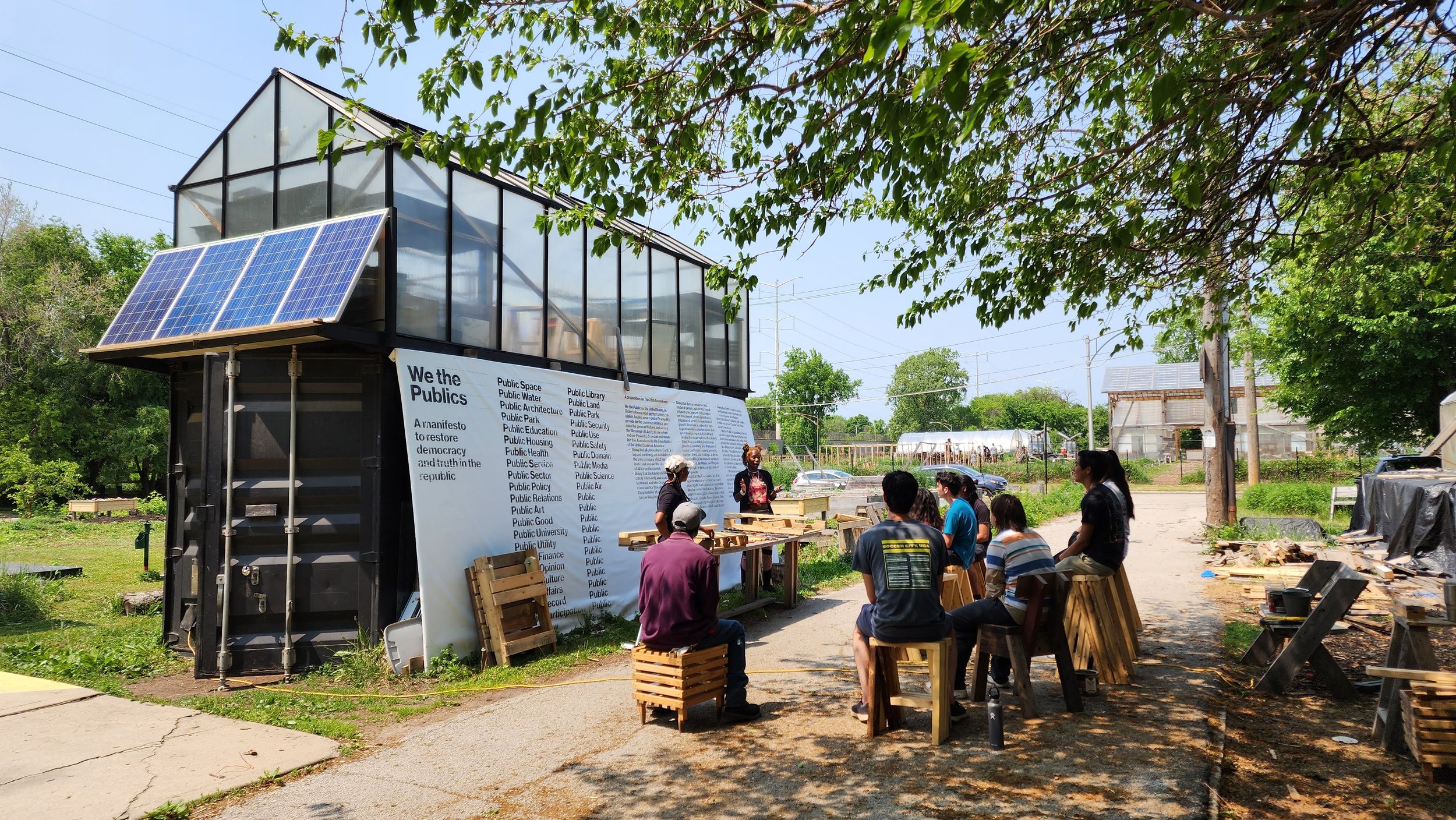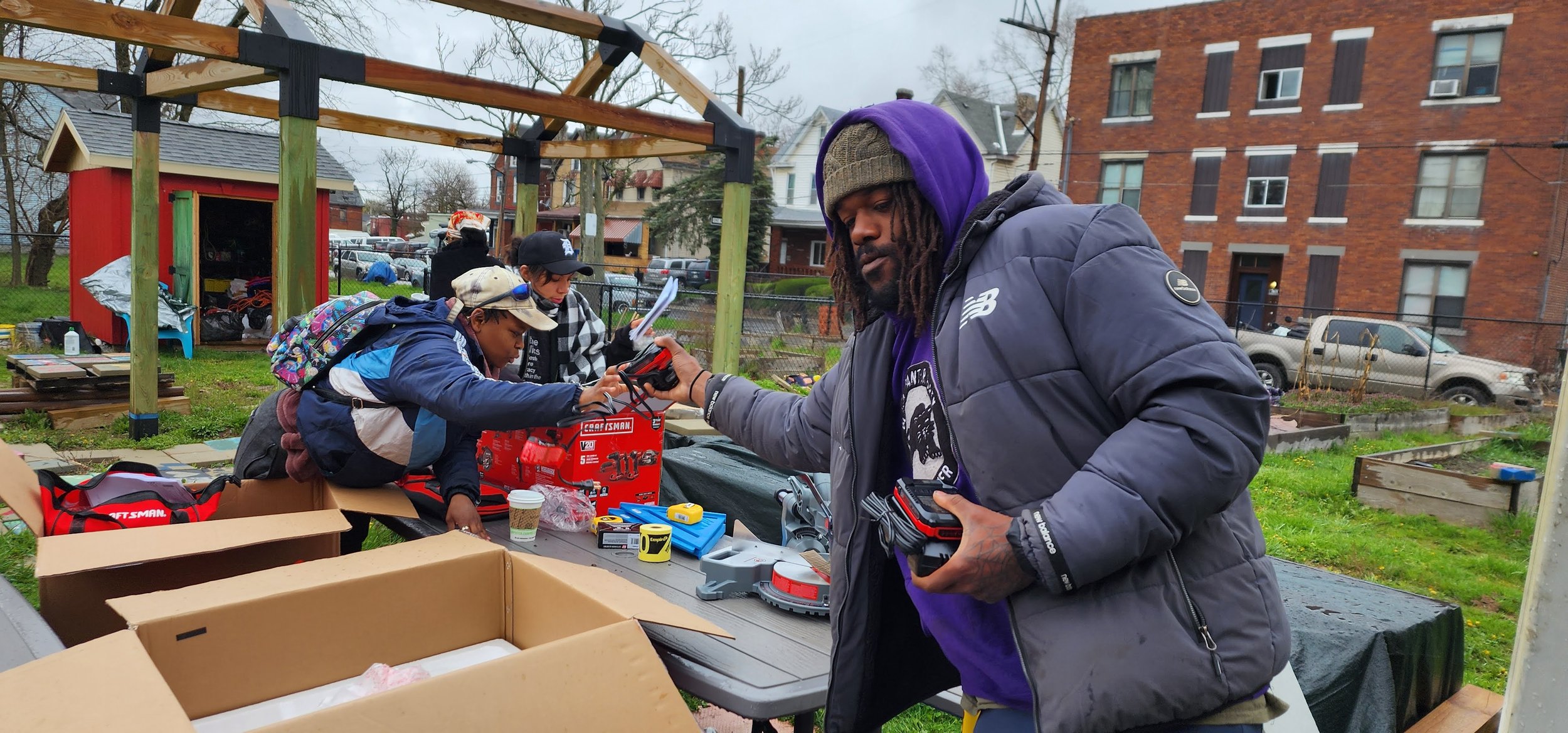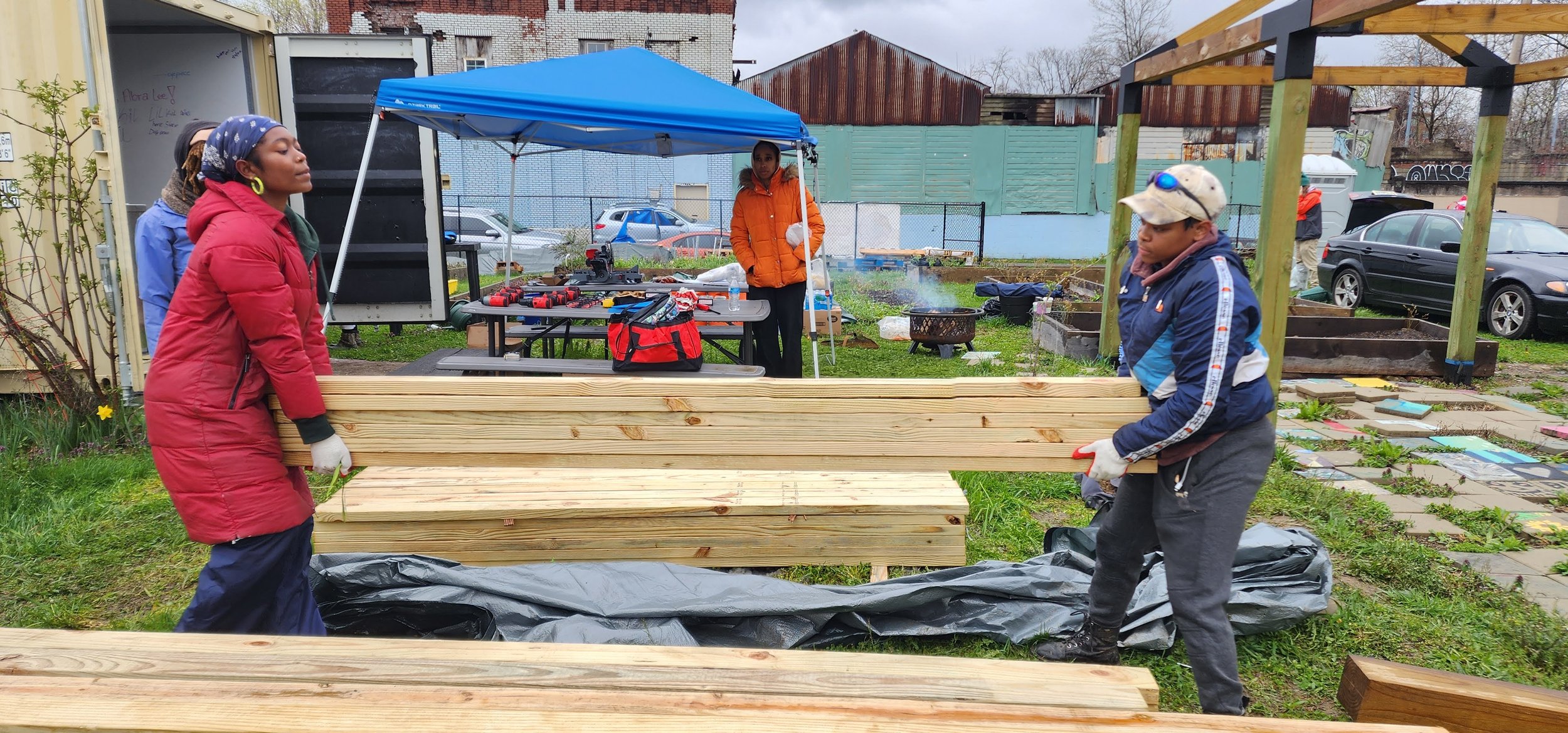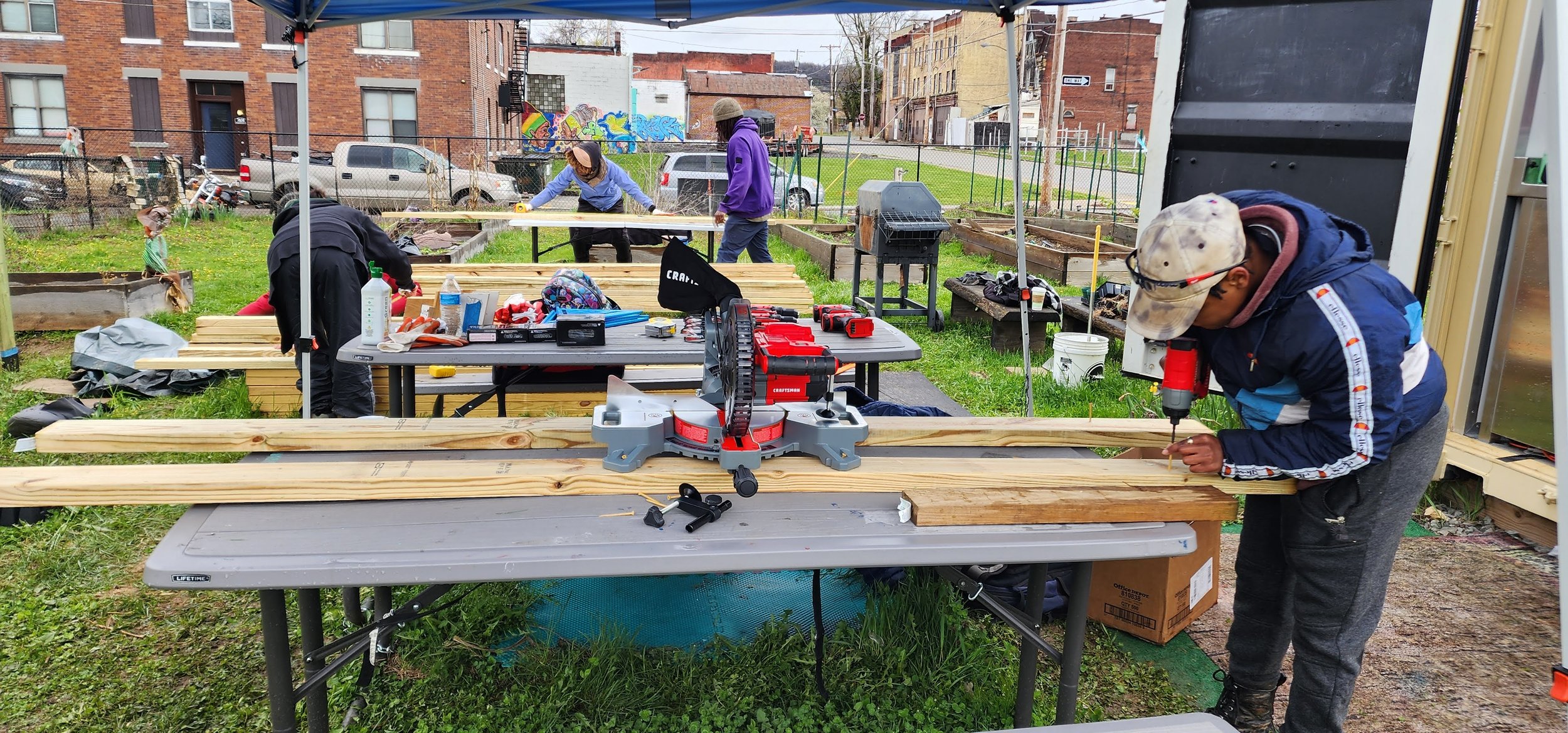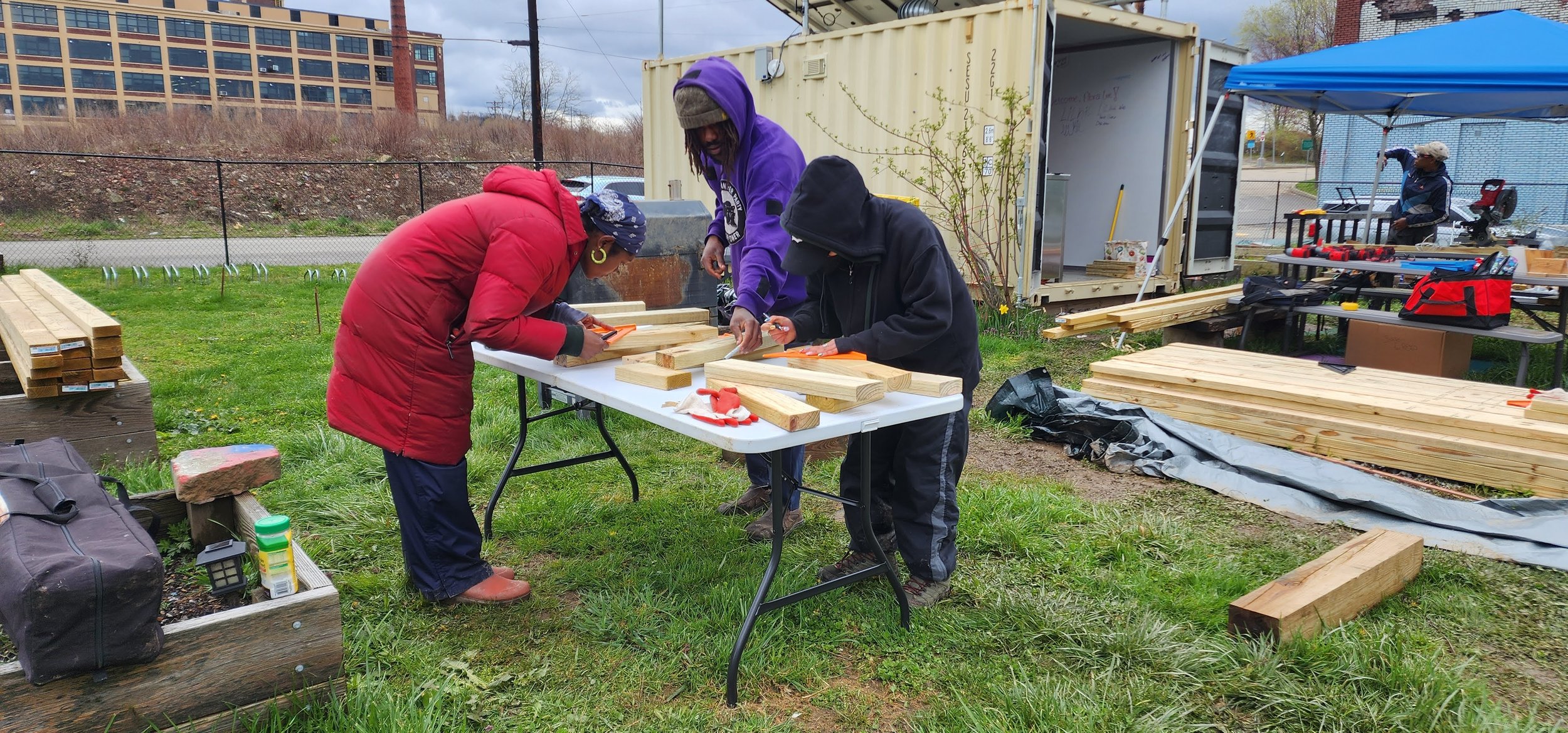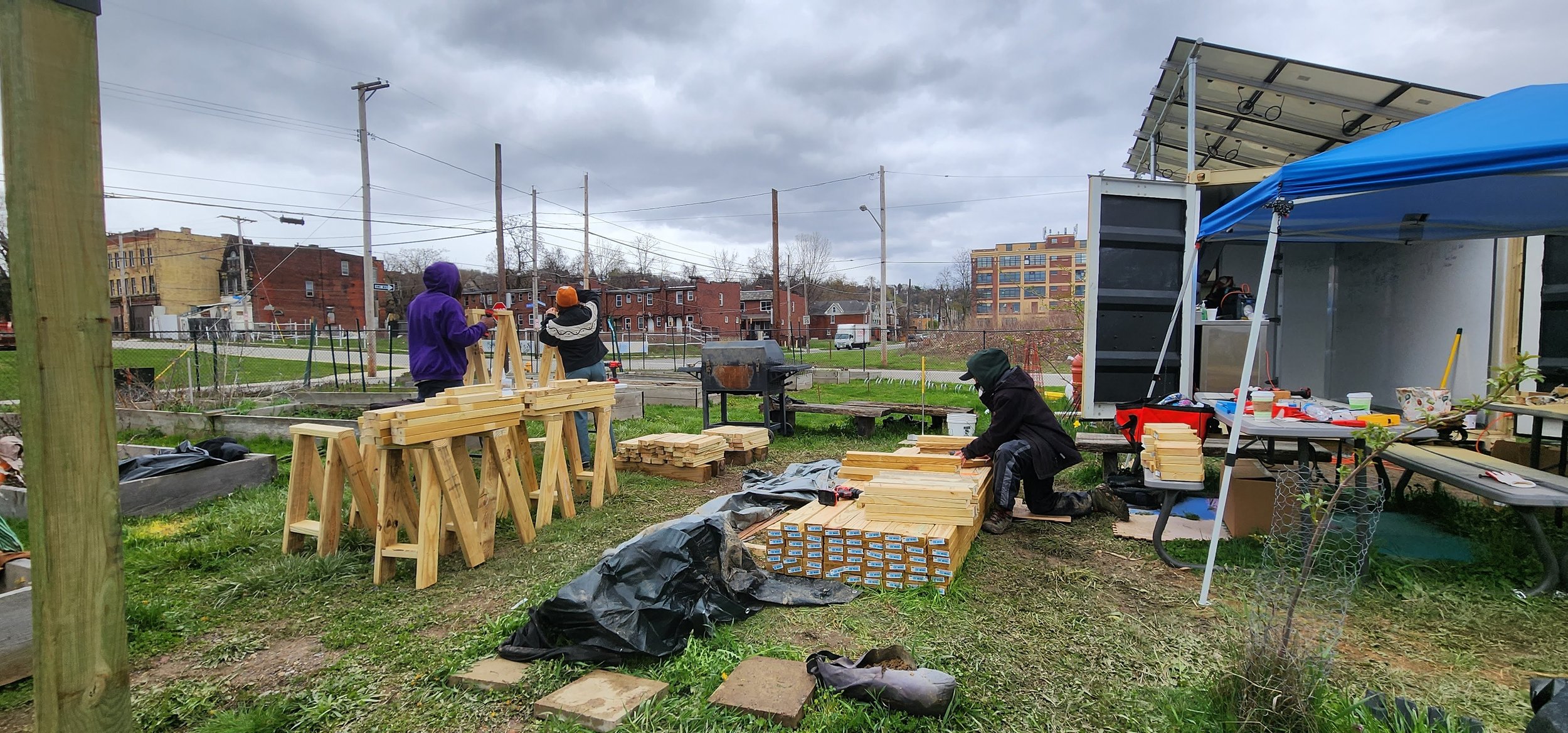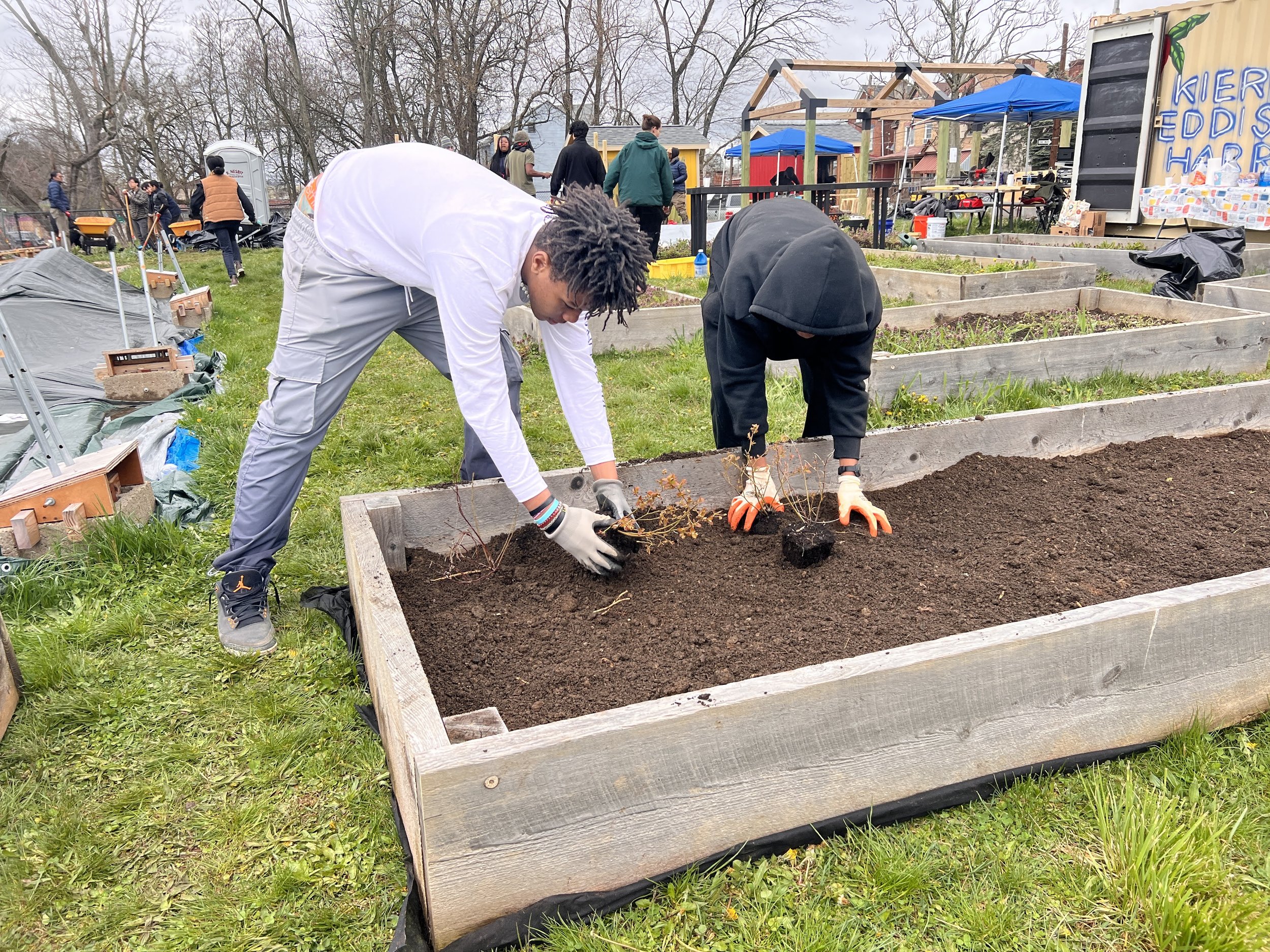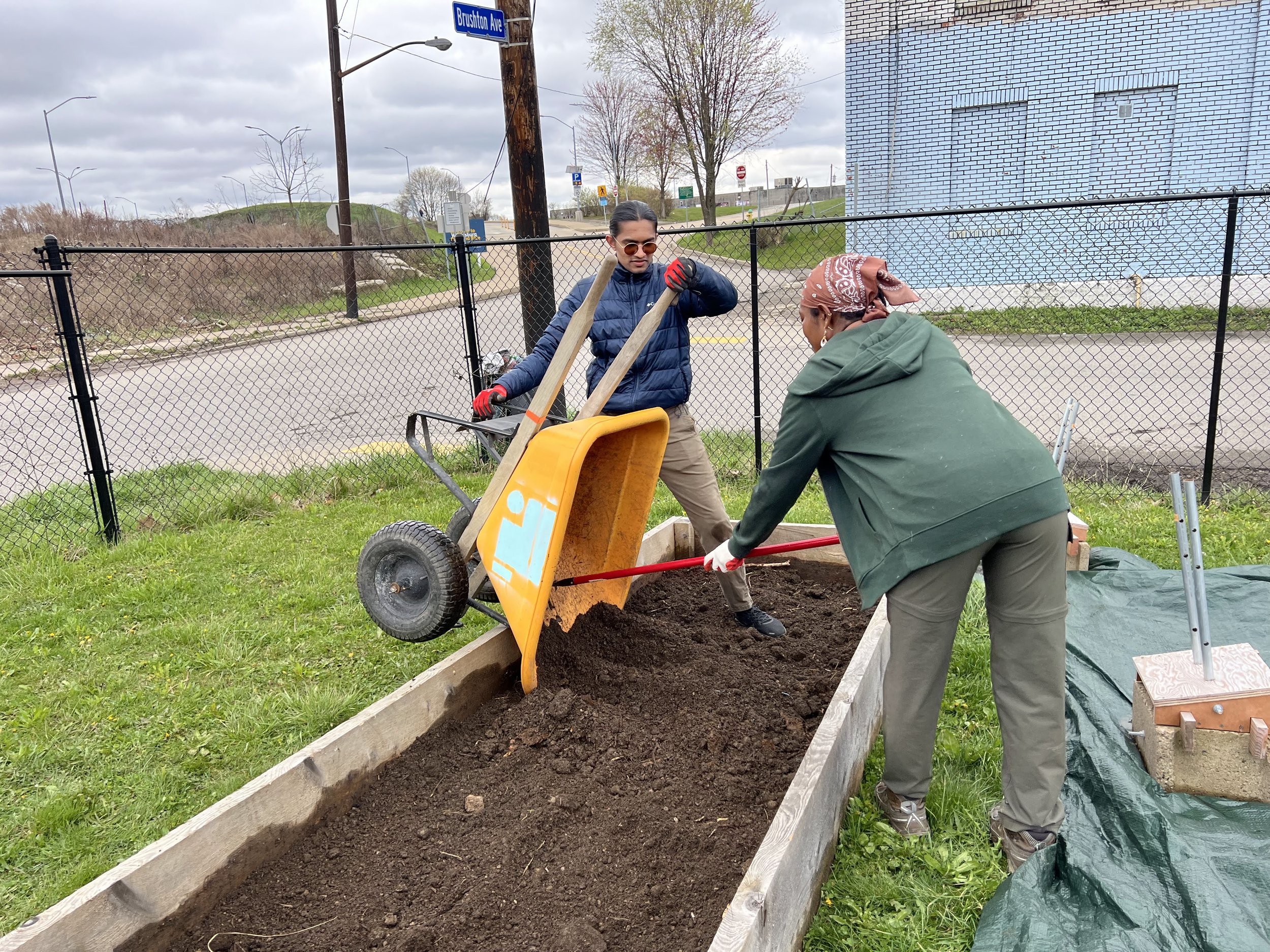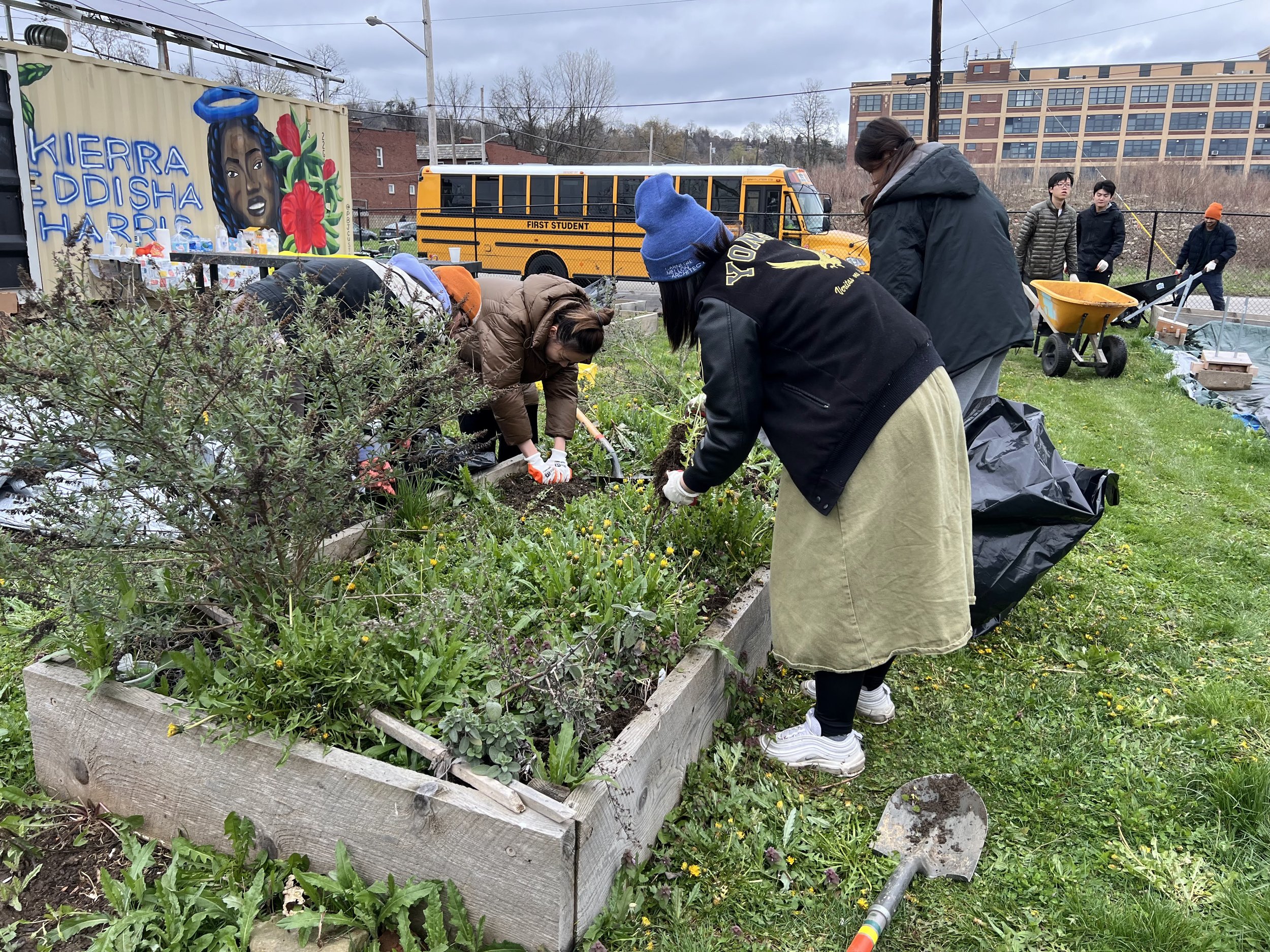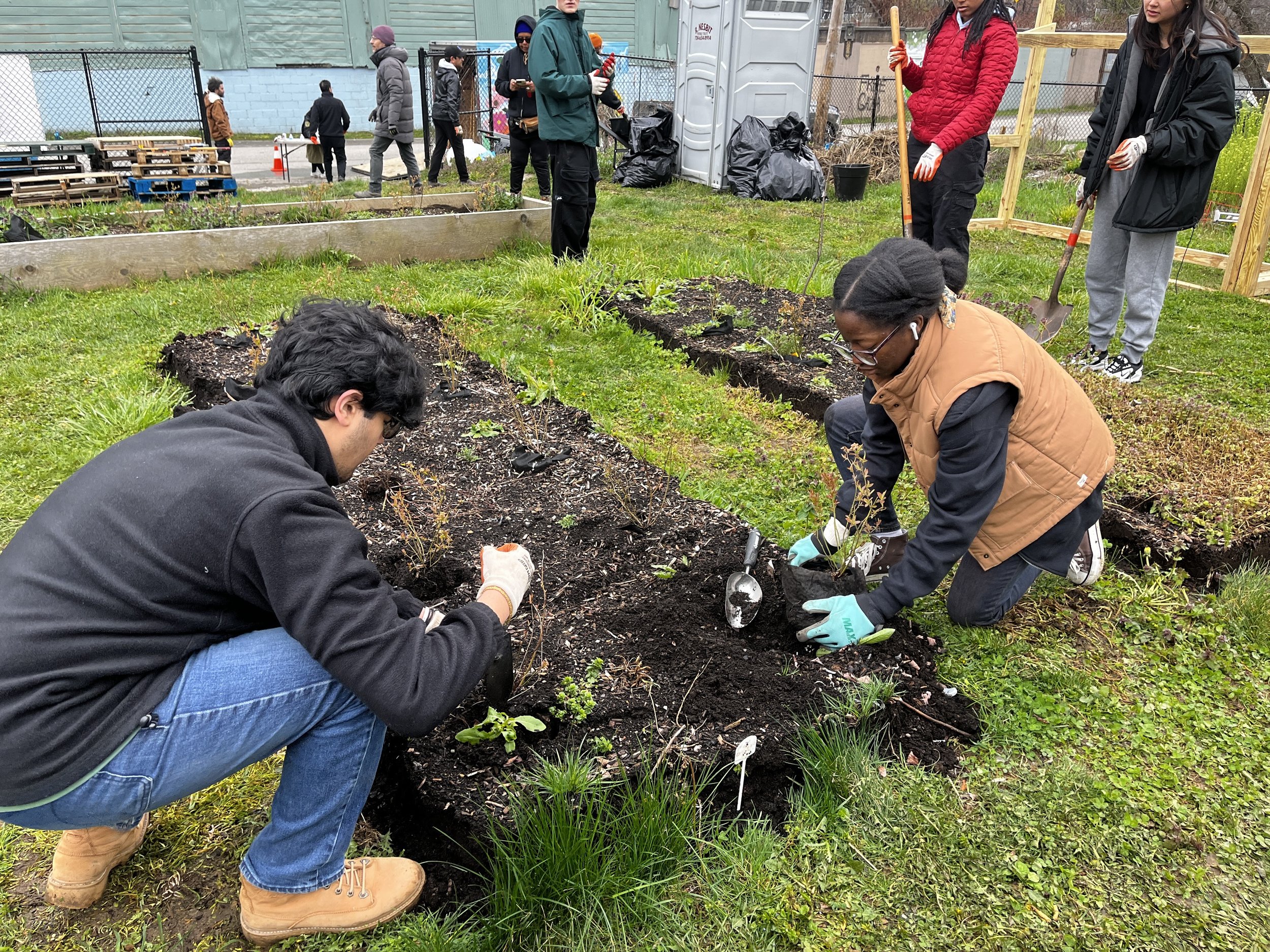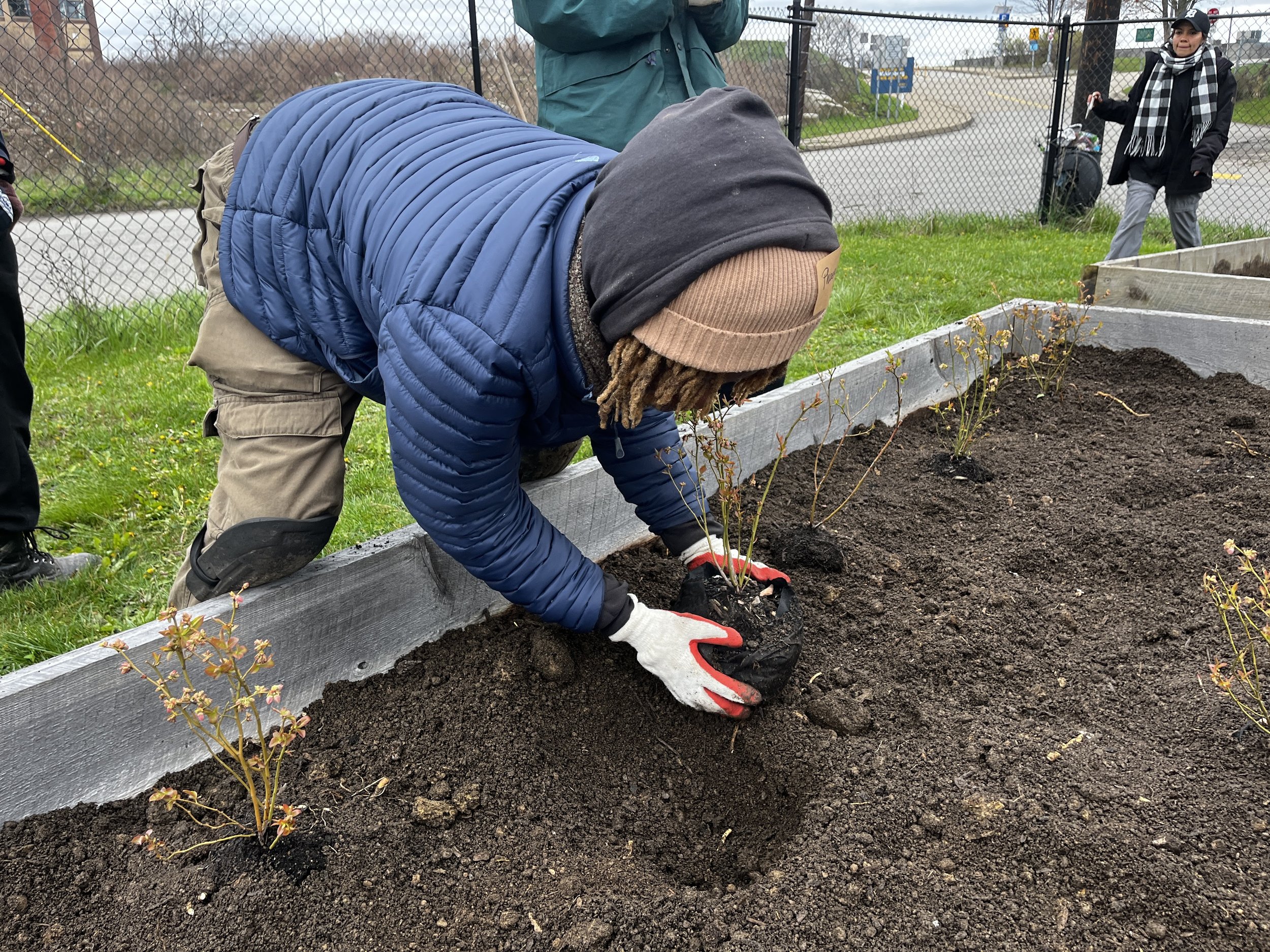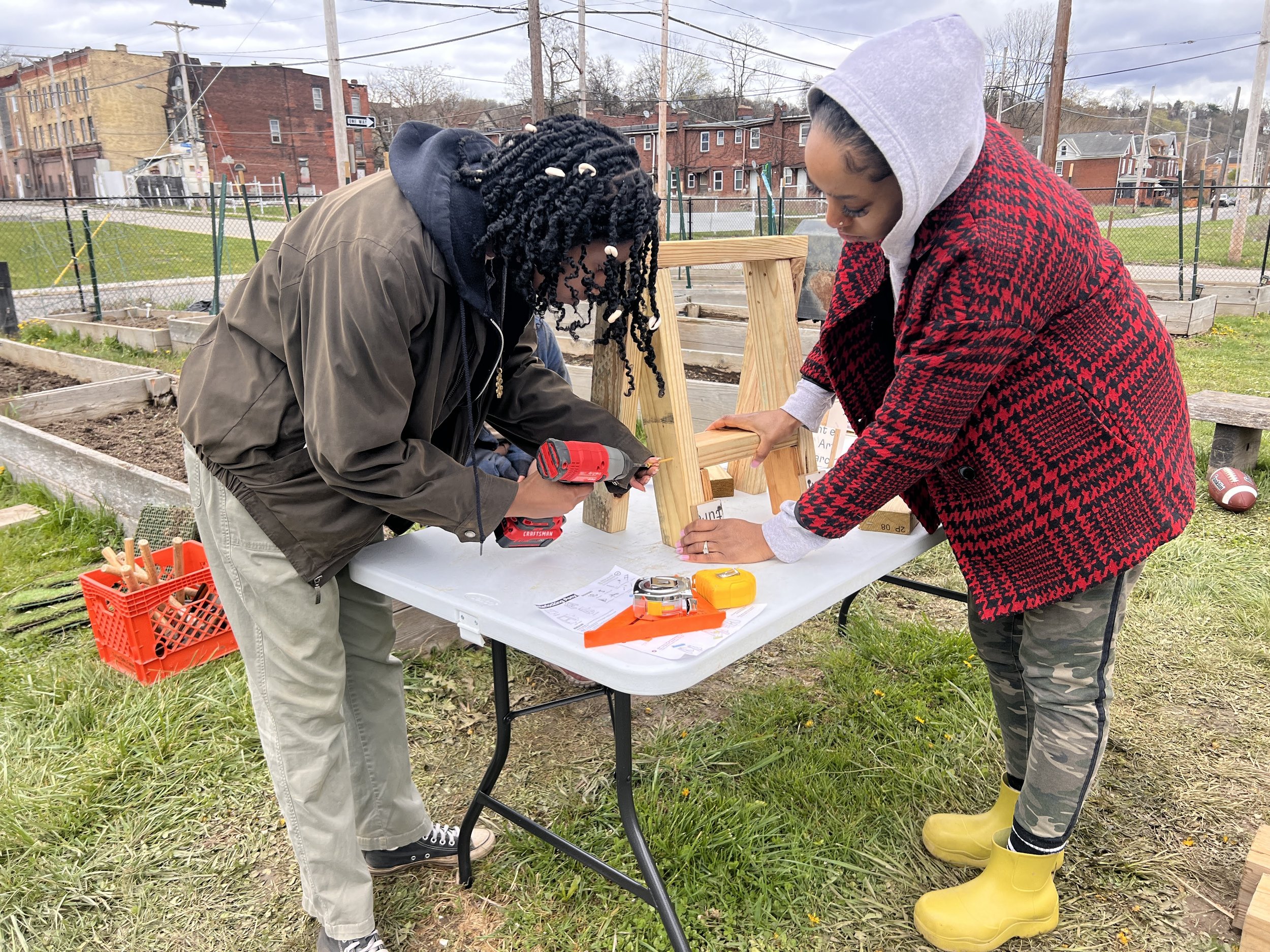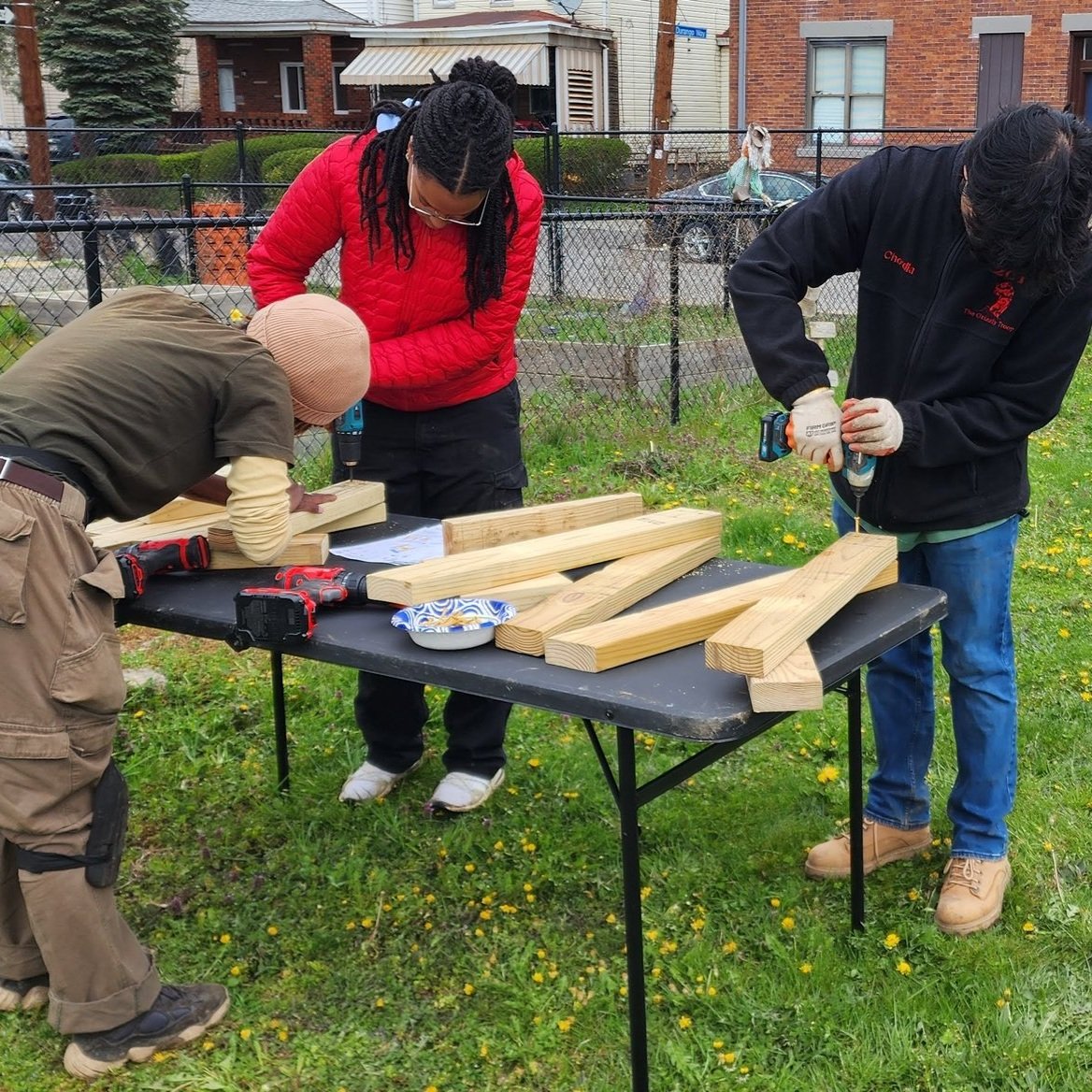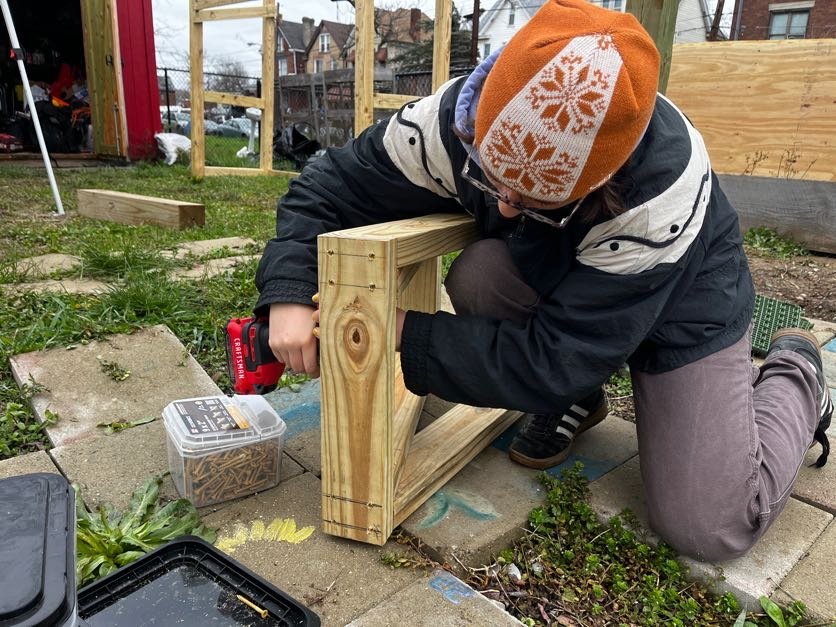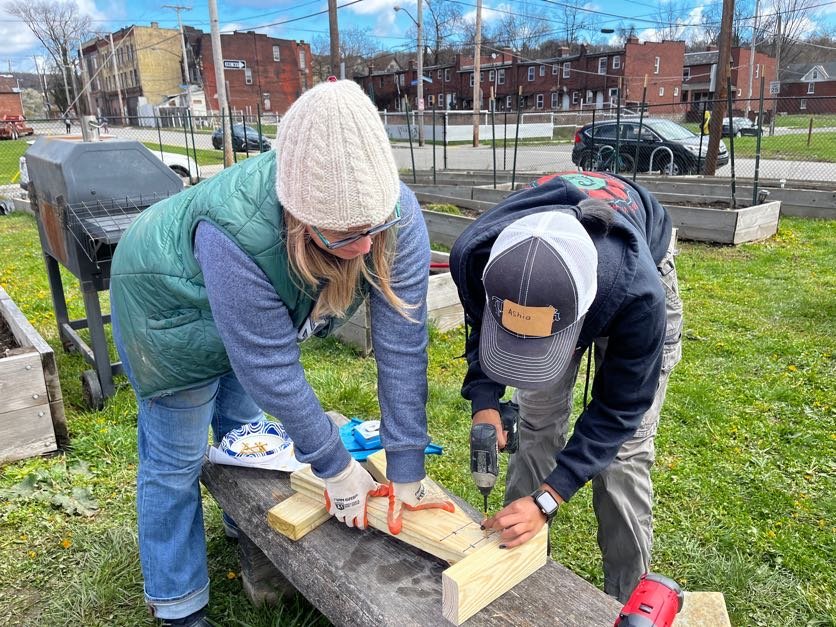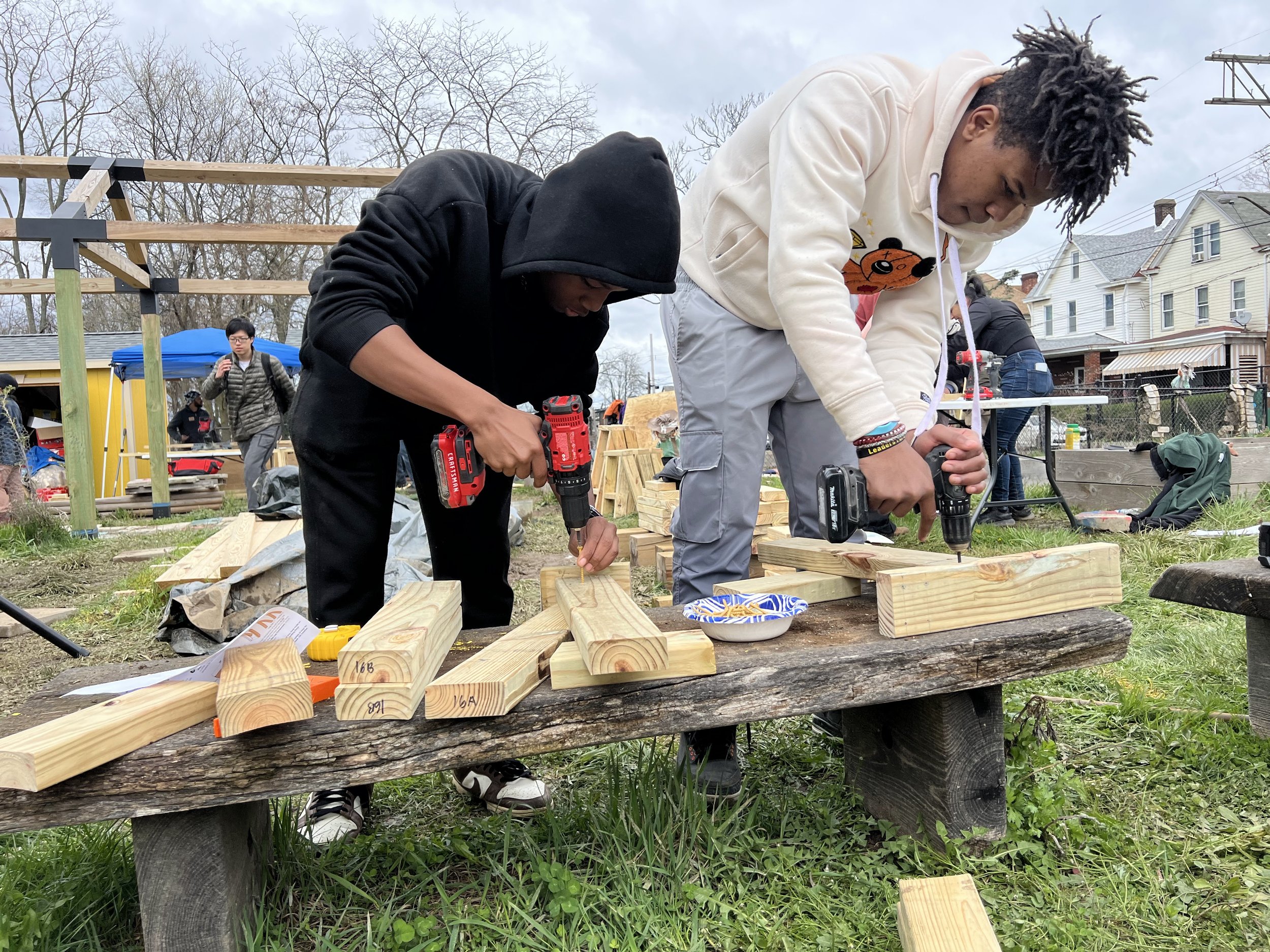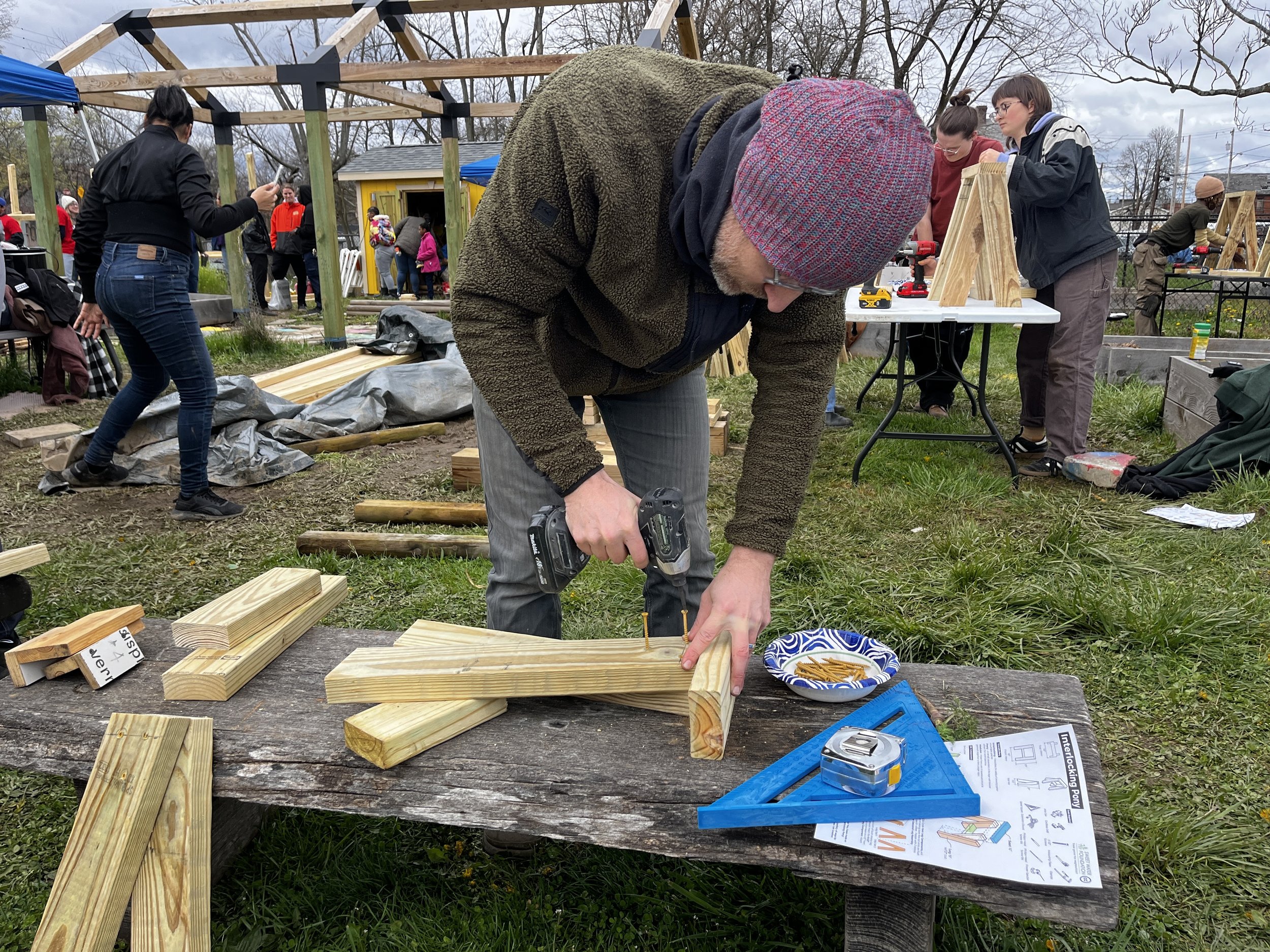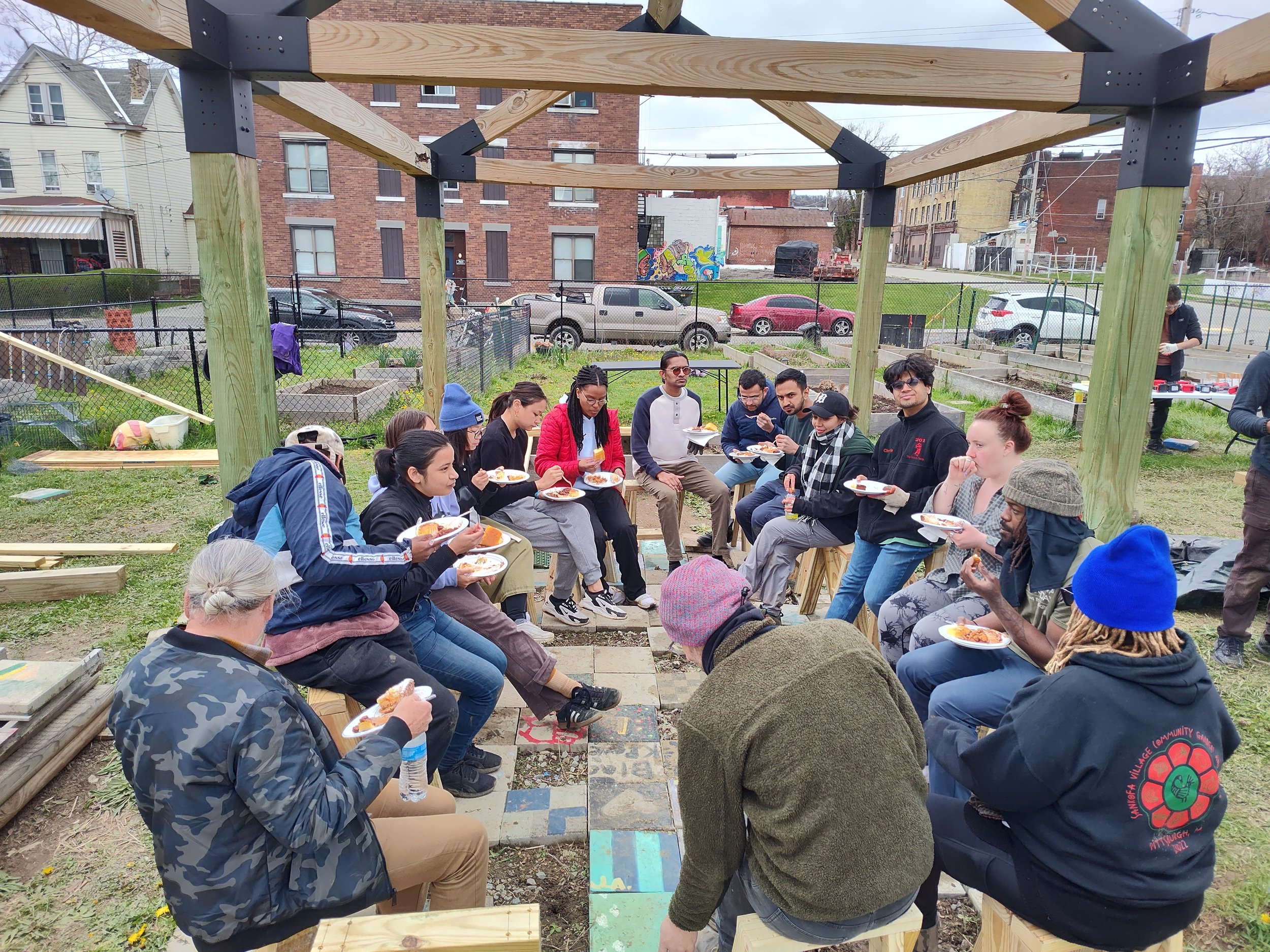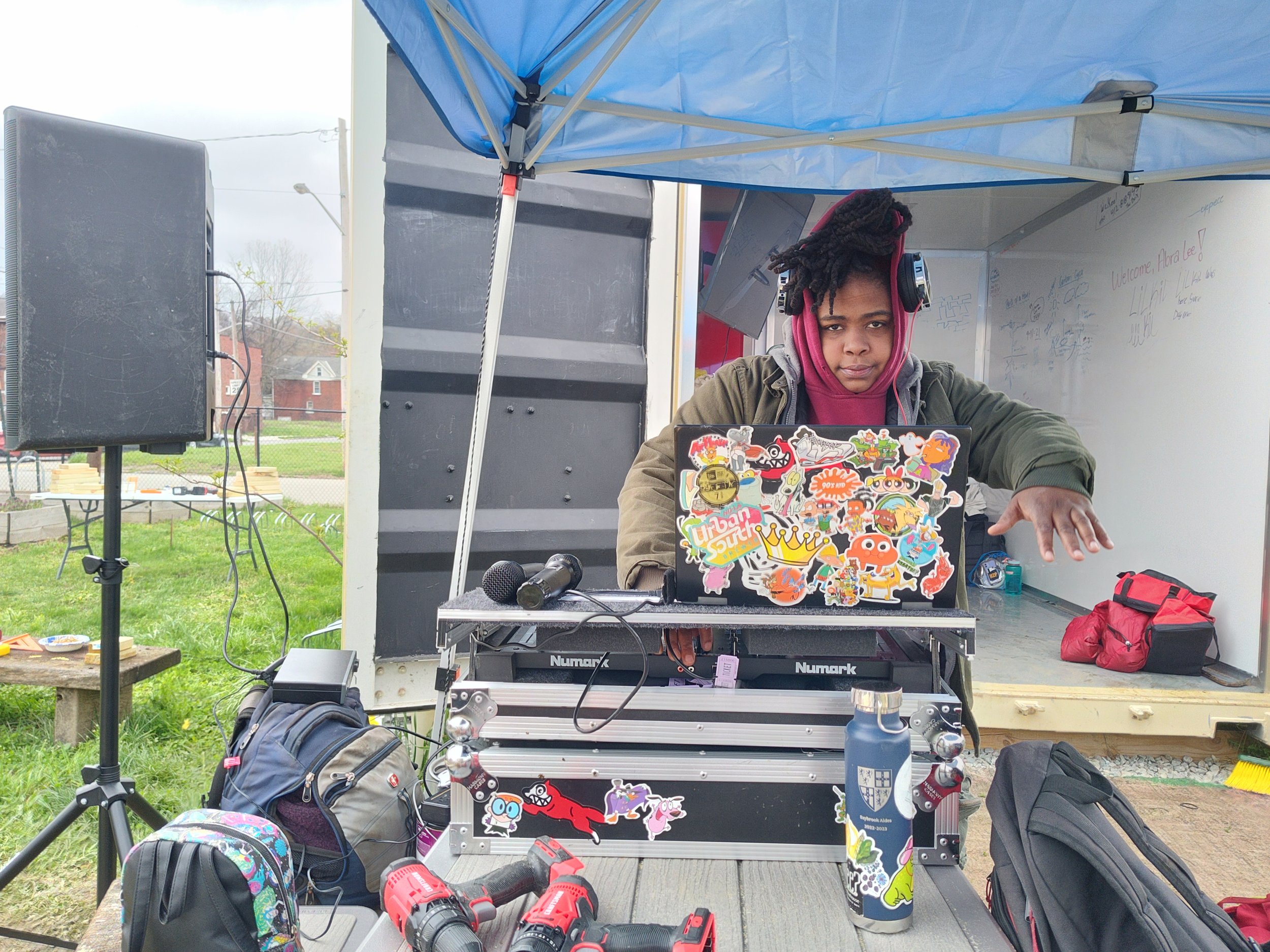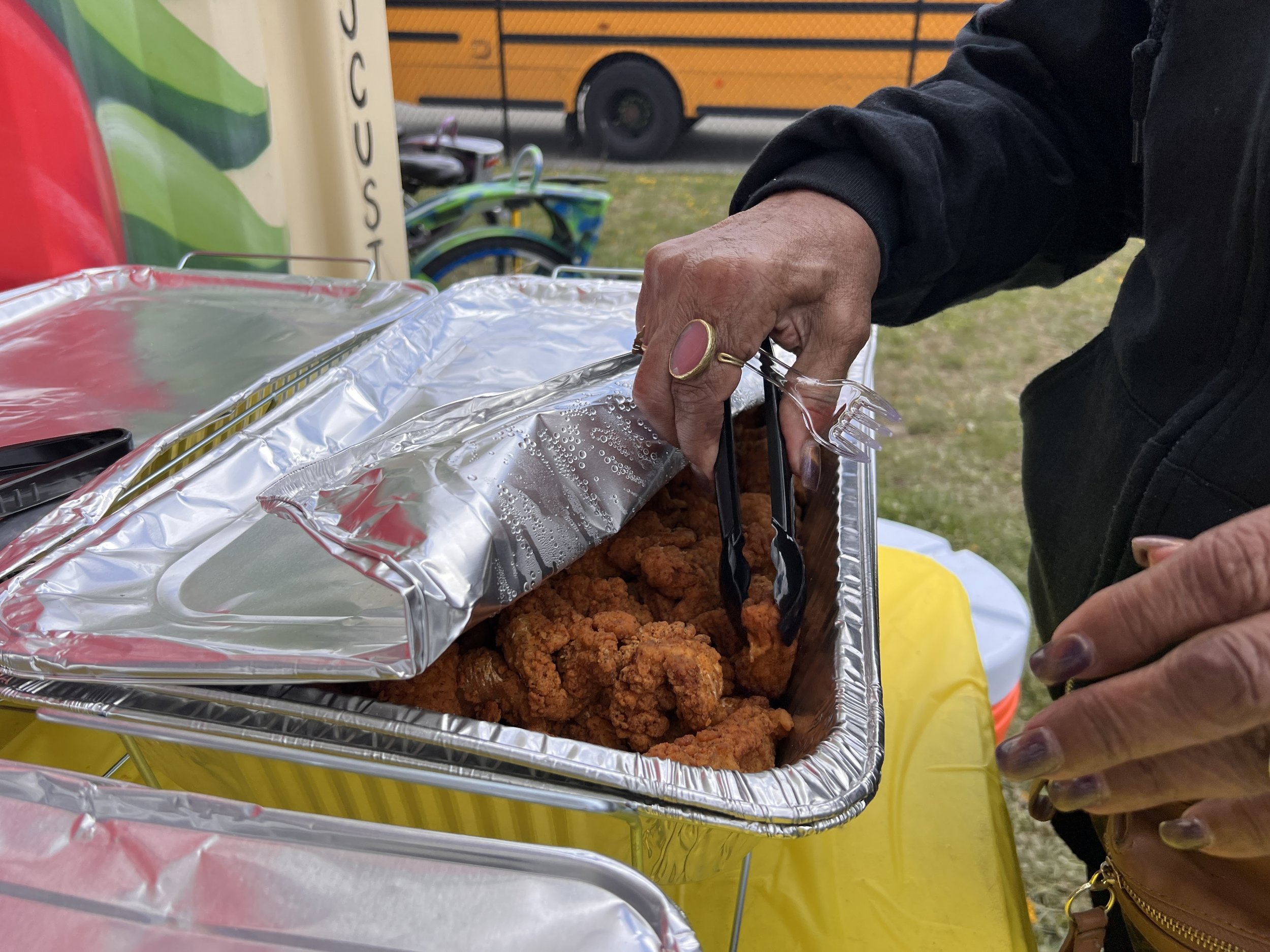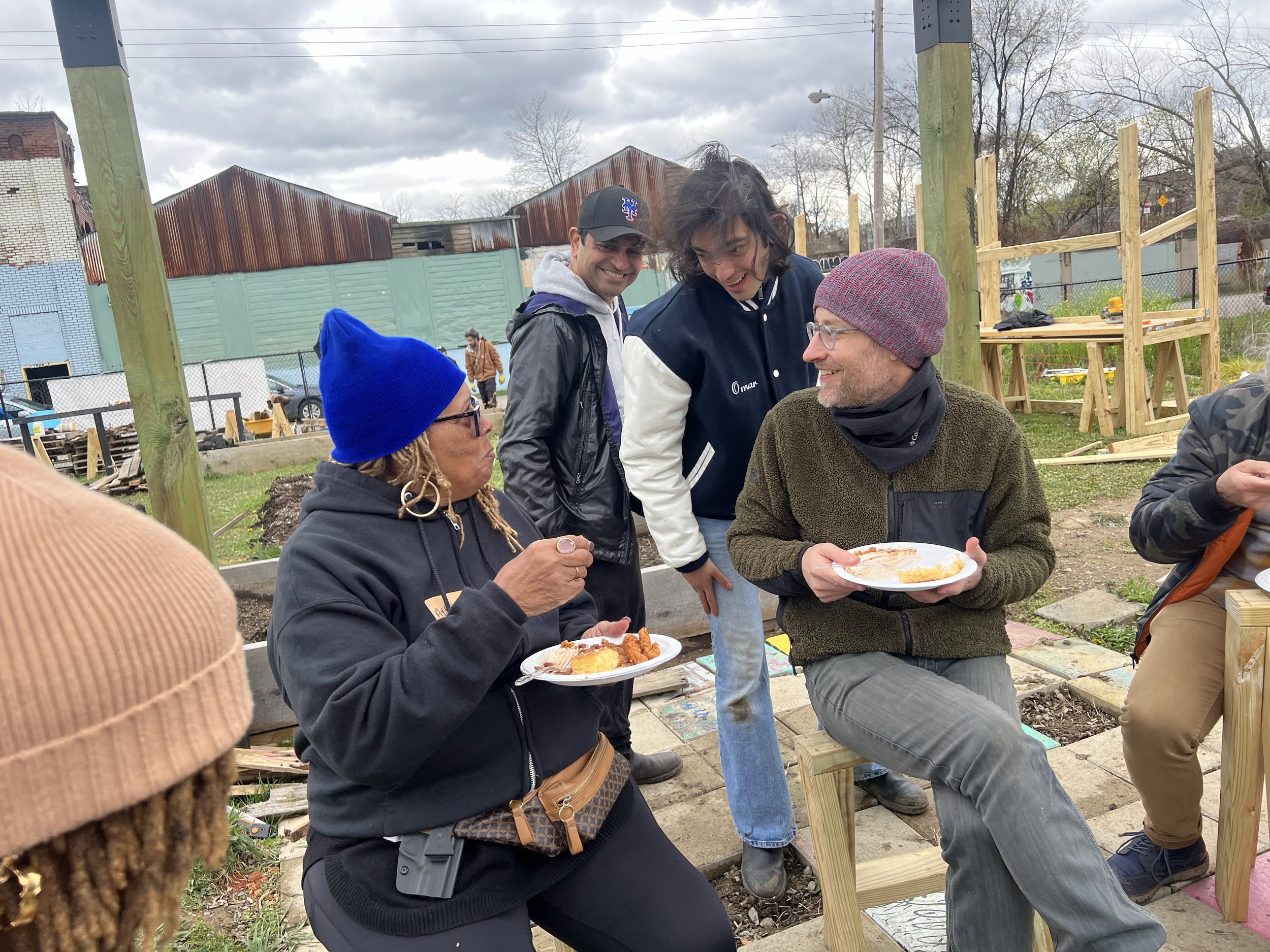SWF Communiversity Convergence in Pittsburgh
On April 5 and 6, members of the SWF team traveled to Pittsburgh, PA, for a Communiversity Convergence with Values-Based Partner Sankofa Village Projects and emerging university partner Carnegie Mellon University. The two-day convergence catalyzed new relationships at Sankofa Village Community Garden through a series of Build-It Workshops that engaged community members and students/faculty from Carnegie Mellon University and the University of Pittsburgh in garden clean-up and the build of new furniture, including SWF’s newly designed Neighborhood Market Stand. Read more.
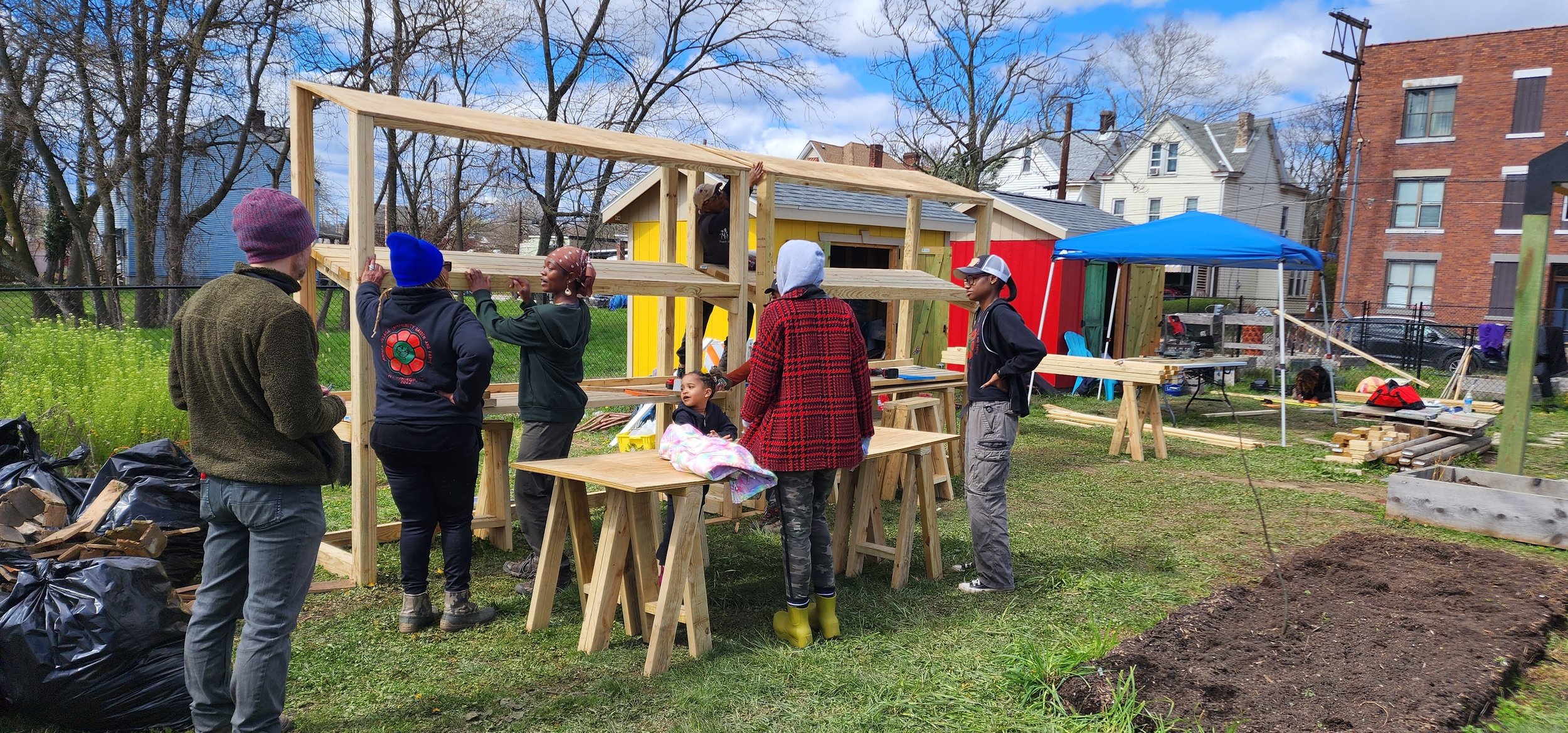
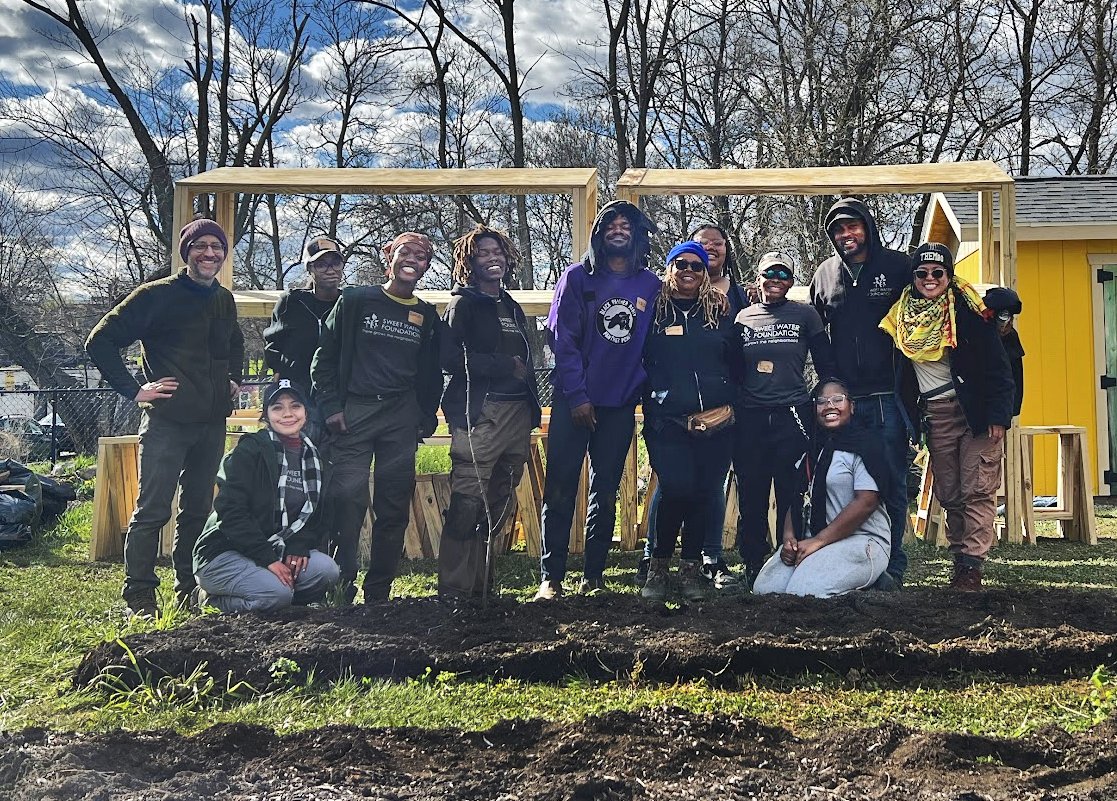
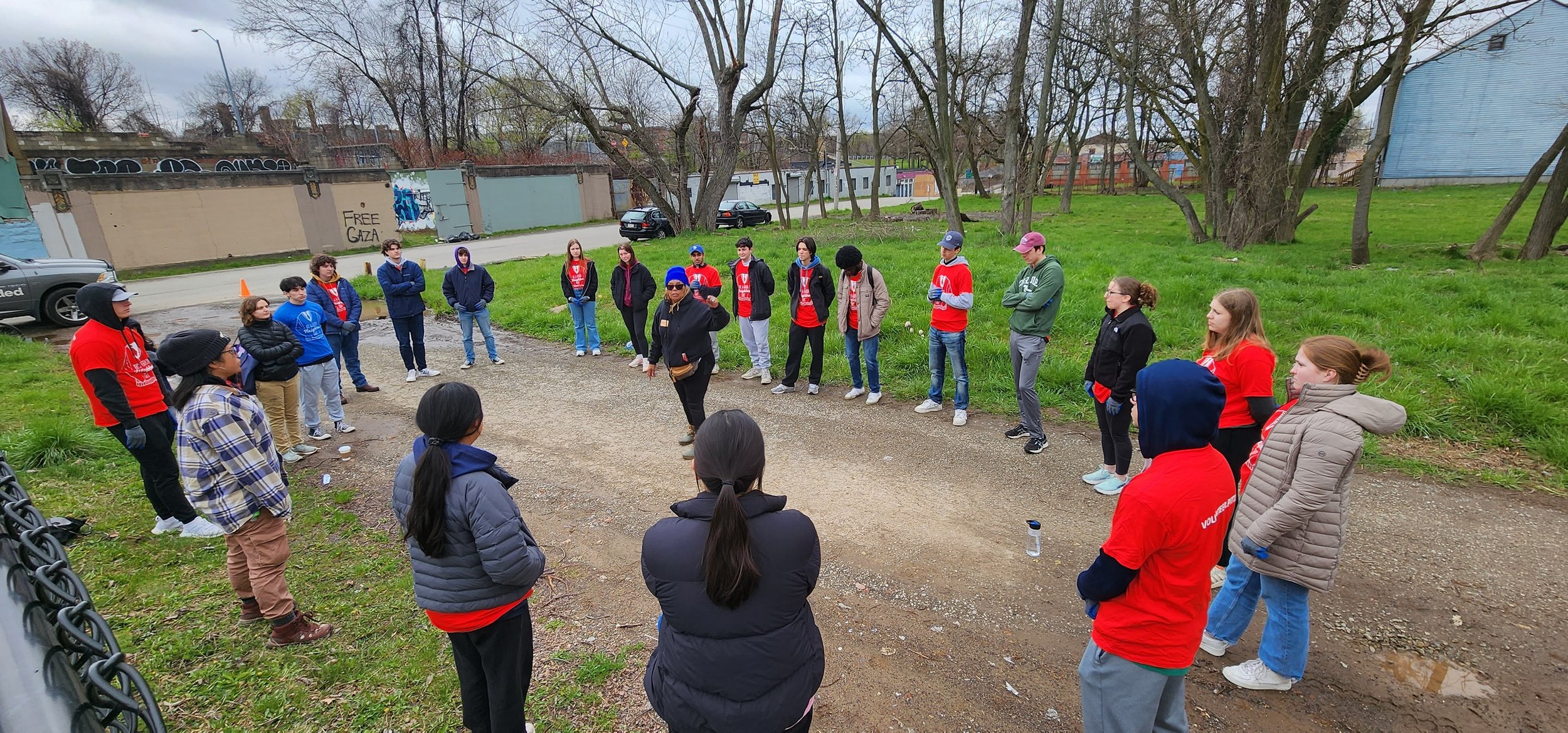
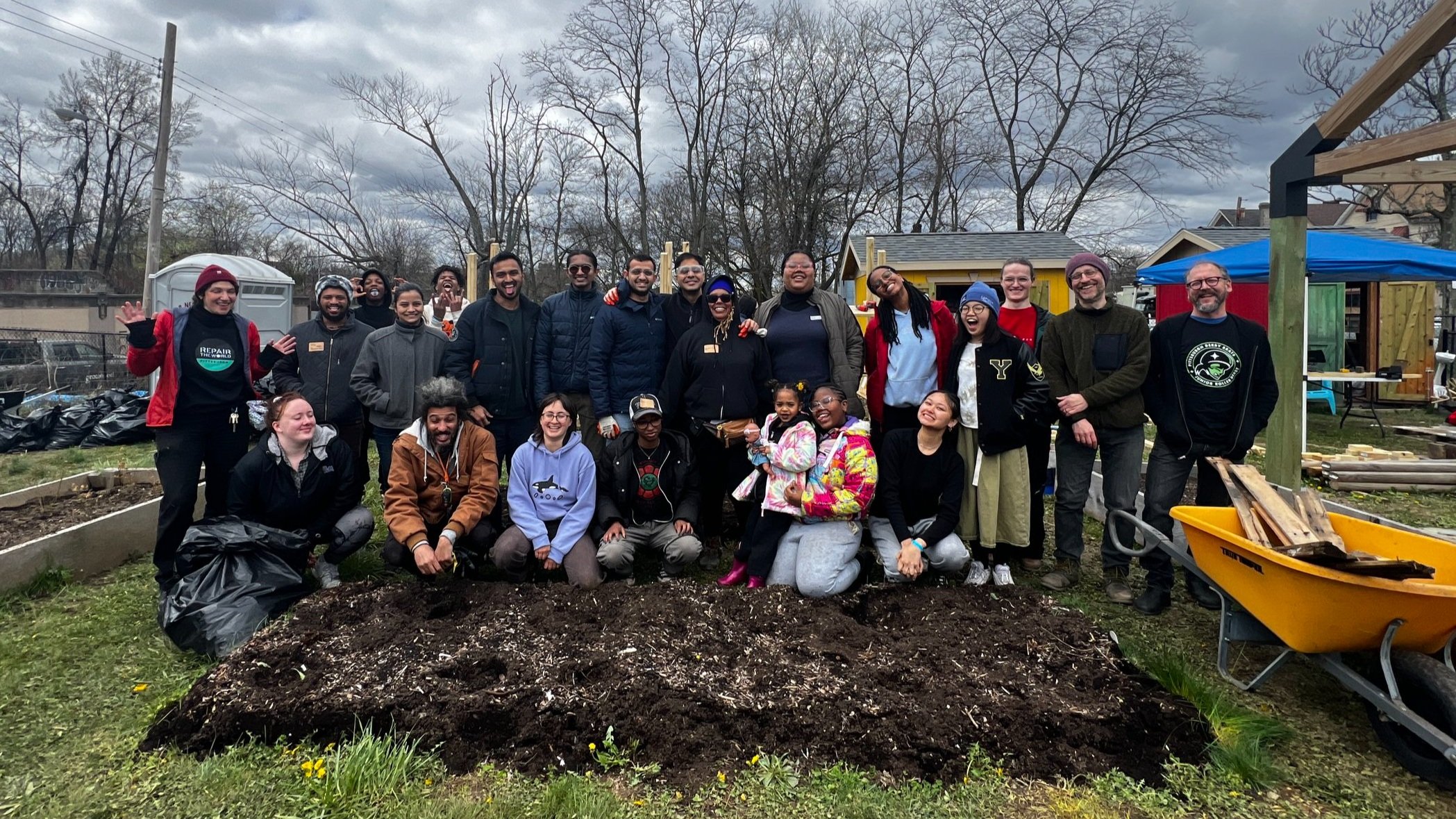
COMMUNIVERSITY CONVERGENCE WITH SANKOFA VILLAGE + CARNEGIE MELLON UNIVERSITY
Over the last decade, Sweet Water Communiversity has engaged its network of Values-Based Partners and university students/faculty in community-driven projects and collaborative research that re-balance the relationship between community and academia and result in tangible, collective action. The convergence in Pittsburgh embodied this vision with a unique sequence of happenings that included two days of hands-on building with Sankofa Village Projects and a public lecture at the School of Architecture at Carnegie Mellon University (CMU).
The Communiversity Convergence in Pittsburgh is part of an ongoing series of urban acupuncture installations at Values-Based Partner sites nationwide that engage Communiversity participants and VBP communities in design, build, and Civic Arts projects.
DAY 1 | WORKSHOP PREP + CONVERGENCE AT CMU
On Friday morning, Mama Ayanna Jones and her team from Sankofa Village Projects welcomed the SWF team to the Sankofa Village Community Garden. The two teams gathered on the city block in Homewood in preparation for the Communiversity Build-It Workshop the following day. Sankofa Village Projects (SVP) is a community-rooted organization in the Homewood South community in Pittsburgh, an area with strikingly similar dynamics to the South side of Chicago. Both are nestled in communities that reflect different demographics and extreme infrastructure differences (i.e., housing, businesses, amenities, and recreational spaces) from the downtown and university campuses (the University of Chicago and Carnegie Mellon University, respectively) that are mere minutes away.
Sankofa Village Projects is led by Mama Ayanna Jones, who has, over time, evolved the organization’s work to include: gardening, a boxing academy, a basketball program, and a bike program, among other programs that cultivate the health and safety of the neighborhood. The SWF team instantly saw the parallels between The Commonwealth at SWF and Sankofa Village Project’s site. At the center of the Sankofa Village Community Garden site was a shipping container with a large mural, a Solar Array directly above that offer power to the container, and whiteboards inside to capture ideas and notes. Each aspect parallels SWF’s Smart Pod, the mural on the side of Think-Do House, and the whiteboard + chalkboard paint inside.
After a brief orientation to the site, the SWF and SVP teams rapidly got into flow formations; setting up workstations, assigning roles for building preparations, and walking through dress rehearsals for the Build-It Workshop that would need to engage 50+ people the following day. The teams collaborated to pre-cut and pre-drill materials for SWF’s Interlocking Ponies, Interlocking Burros, and two Neighborhood Market Stands.
Public Lecture at Carnegie Mellon University
Later that same evening, the Sweet Water and Sankofa Village teams went to Carnegie Mellon University, where SWF Executive Director, Emmanuel Pratt, delivered a public lecture to students, faculty, and members of the general public. The lecture focused on SWF’s Communiversity re-search and framework for Re-Mapping the Publics: Resolutions for Regenerative Neighborhood Development – an urgent call for a paradigm shift to re-map public resources to build true common wealth.
The lecture was followed by a vibrant panel discussion featuring Mama Ayanna Jones (Sankofa Village Projects) and Karen Abrams (former Director of City Planning for the City of Pittsburgh), who joined Emmanuel to interrogate the role of city planning and universities in neighborhood development, which is, oftentimes, exclusive and disconnected from the relationships, land, and life of a neighborhood. Panelists offered differing opinions as to whether city planners working on behalf of city government can promote and support values-aligned neighborhood development. However, all three of the panelists agreed with the fundamental truth that there is no movement building without actively participating in work on the ground.
“There is an art to movement work. Movement work only works when it is moving… physically, emotionally, and spiritually.”
The discussion also touched on “community outreach” efforts typically employed by universities. Mama Ayanna commented on how rare it was for the young people she knows to be invited to Carnegie Mellon University, highlighting the disconnect between universities and their surrounding communities. Emmanuel responded that is why the Communiversity exists, “because historically, universities, by design, have not been rooted and connected to their surrounding communities. SWF created the Communiversity to root academic theory and research in daily praxis on the ground.” The Communiversity disrupts traditional modes of higher education via a pedagogy that connects and engages people of all ages/backgrounds in the work of regenerating neighborhoods, thus creating a bridge between university students, faculty, and the community.
DAY 2 | COMMUNIVERSITY BUILD-IT WORKSHOP AT SANKOFA VILLAGE
On Saturday, the team met at Sankofa Village Community Garden for a Communiversity Build-It Workshop and Block Party Celebration. Build-It’s are carpentry sessions at SWF Values-Based Partner sites using designs + lessons from SWF Communiversity’s Portfolio of Possibilities to transform spaces. To date, Build-It’s have taken place with Values-Based Partners in Detroit, MI; Huntington, WV; Boston, MA; and across Chicago, among other sites. Similar to other Build-It’s, participants built Interlocking Ponies, Interlocking Burros, and SWF’s newly designed Neighborhood Market Stand with pull-out tables.
More than 100 people engaged in the day’s celebratory events, including an intergenerational array of neighborhood residents, students + faculty from Carnegie Mellon University, and a student volunteer group from the University of Pittsburgh. Participants floated between three work and learn “stations” - garden bed soil infill and transplanting, pallet deconstruction, and Interlocking Pony and Burro assembly. Over the course of 6 hours, all of the SVP garden beds were weeded and filled, 20 pallets were deconstructed, and 16 Interlocking Ponies, 16 Interlocking Burros, and 2 Neighborhood Market Stands were built. The day concluded after participants, community members, and the SWF and SVP teams shared a meal using the newly constructed Interlocking Ponies and Burros as seats + tables. SWF team members reflected that the Communiverity Build-It event was a blend of a hands-on immersion, field trip, and community celebration packed into one day.
COMMUNIVERSITY CONNECTION
The Communiversity Convergence in Pittsburgh demonstrates how the Sweet Water Communiversity offers new forms of education that are intergenerational, regenerative, community-based, and connected. The Communiversity is built upon a network of mutual, values-based relationships that emerge through movement and building together – movement building – to re-generate what society needs. This is how the Communiversity addresses the often exclusionary, disconnected, and out-of-touch college and university campus experiences that have limited connection to communities and, consequently, are not providing what students and society need.
In contrast to typical university-community engagements (e.g. keynote talks, panels, one-off studio projects, and volunteer days), the convergence in Pittsburgh catalyzed new, values-based relationships across Sankofa Village Projects, Sweet Water Foundation, and Carnegie Mellon University, the fruits of which will regenerate for years to come.
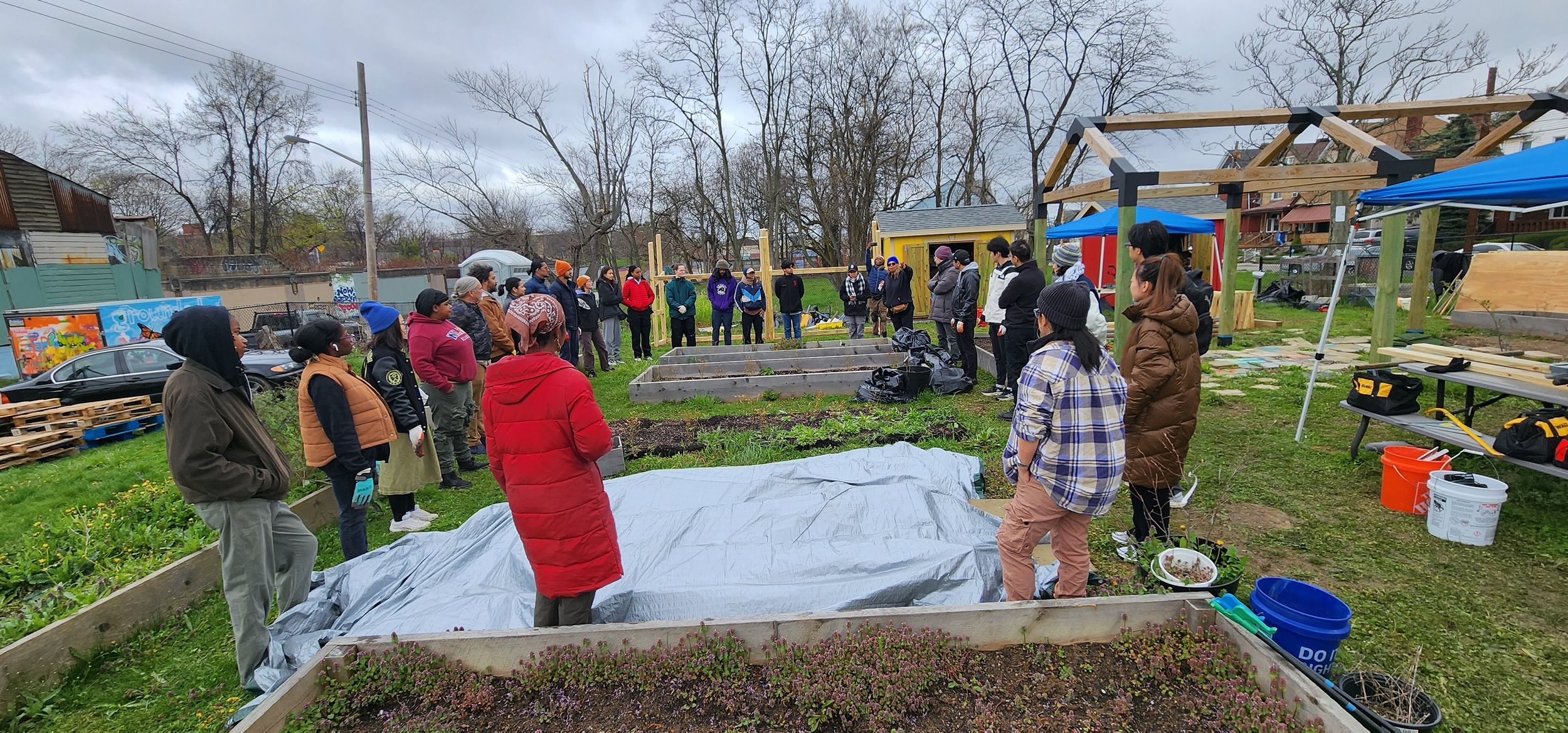
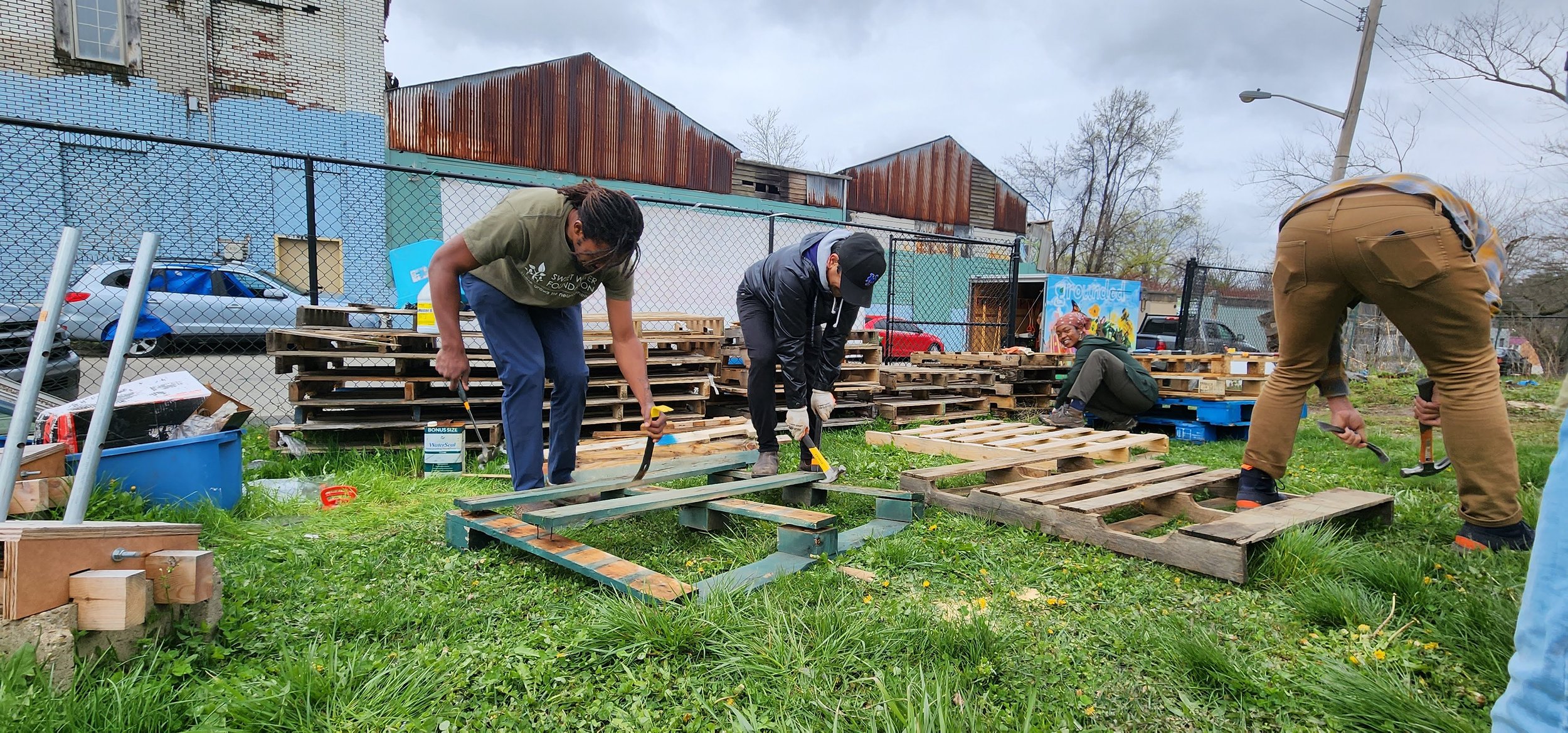
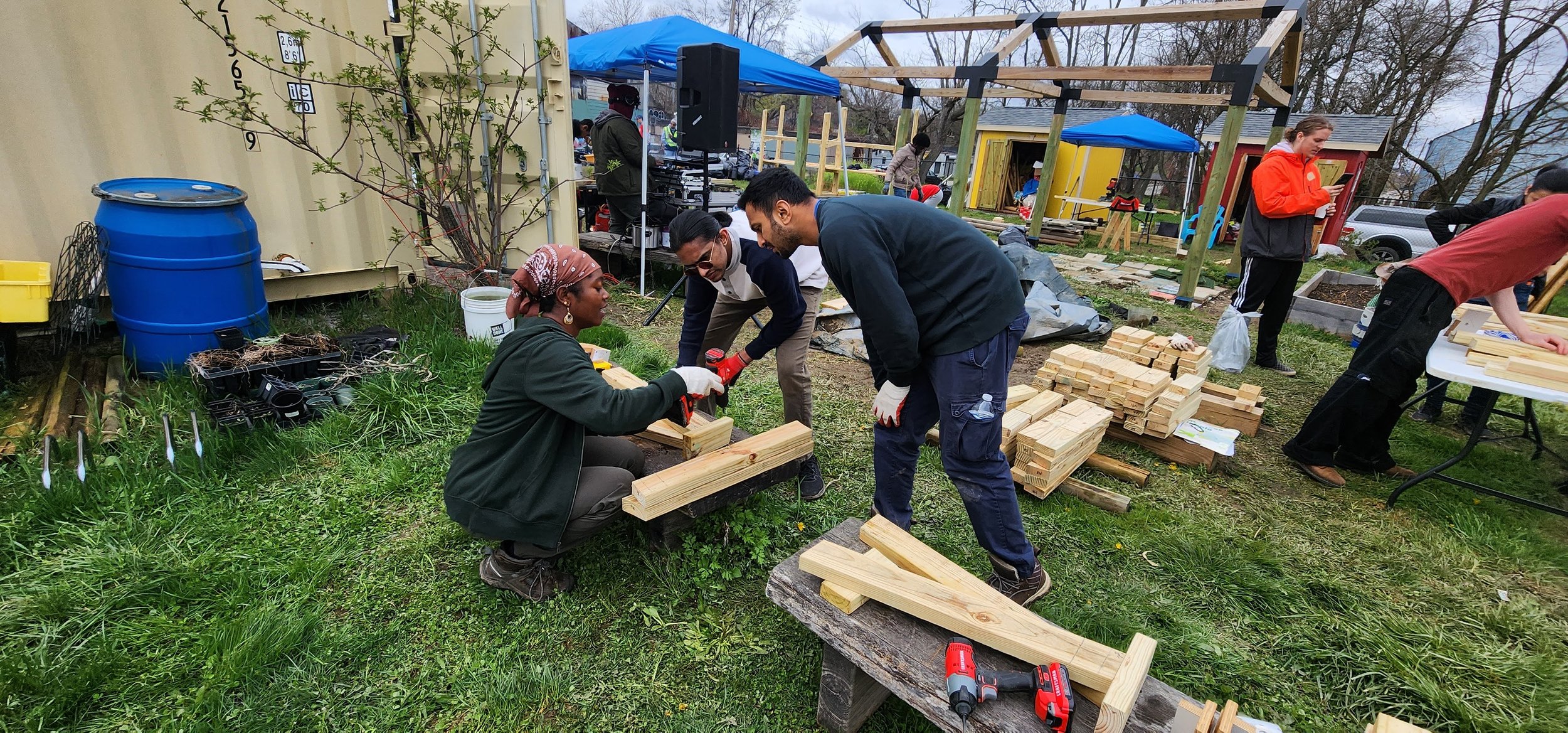
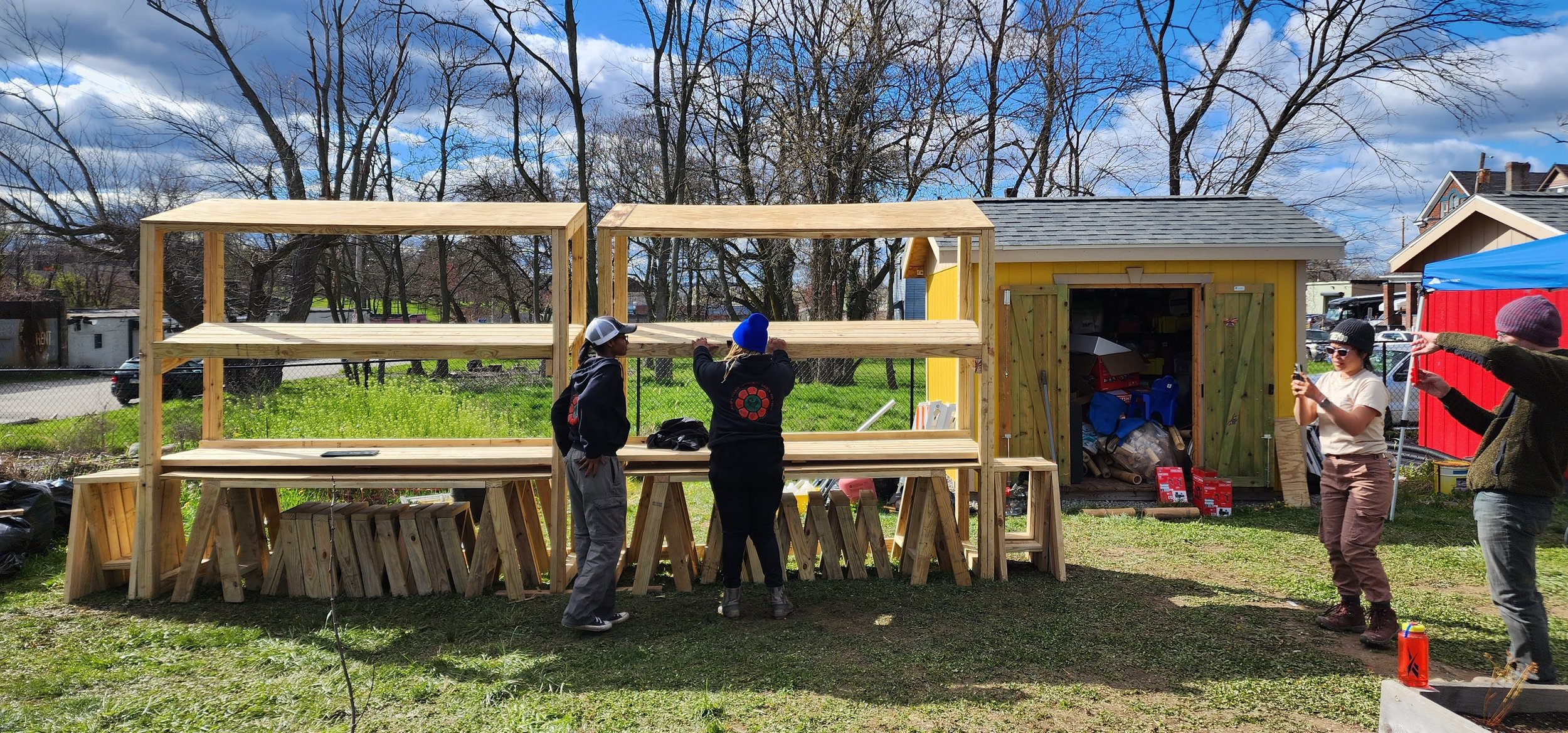
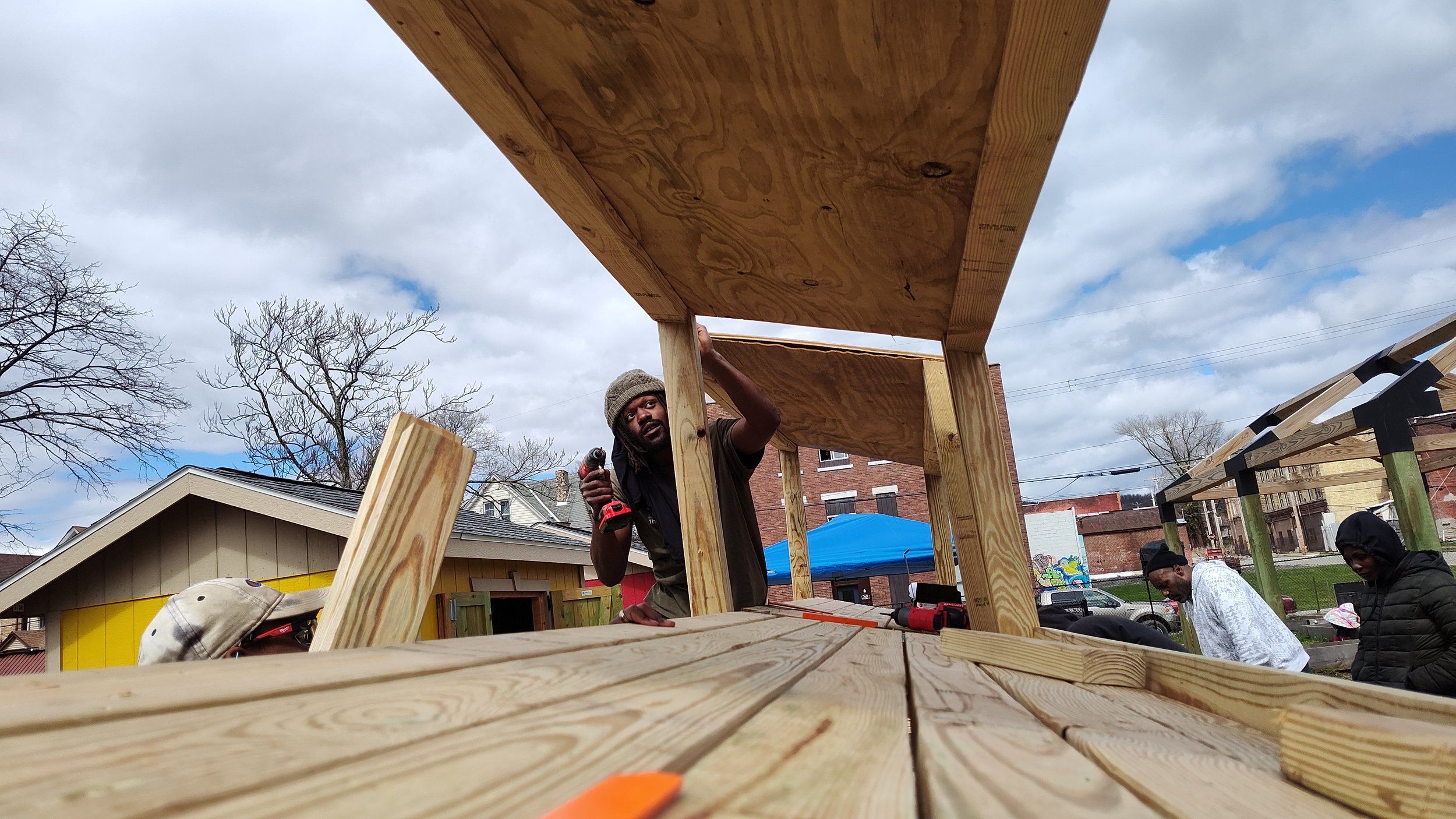
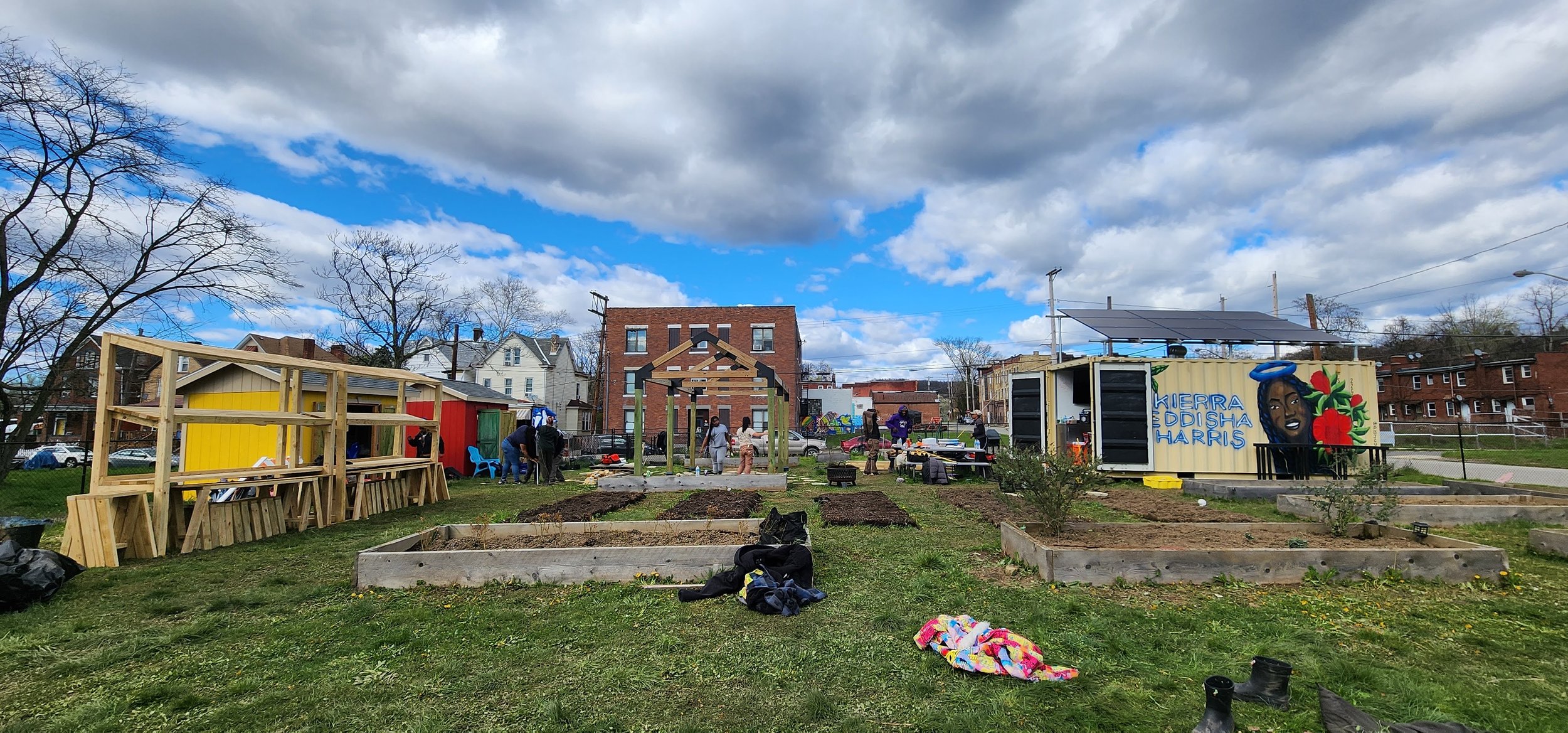
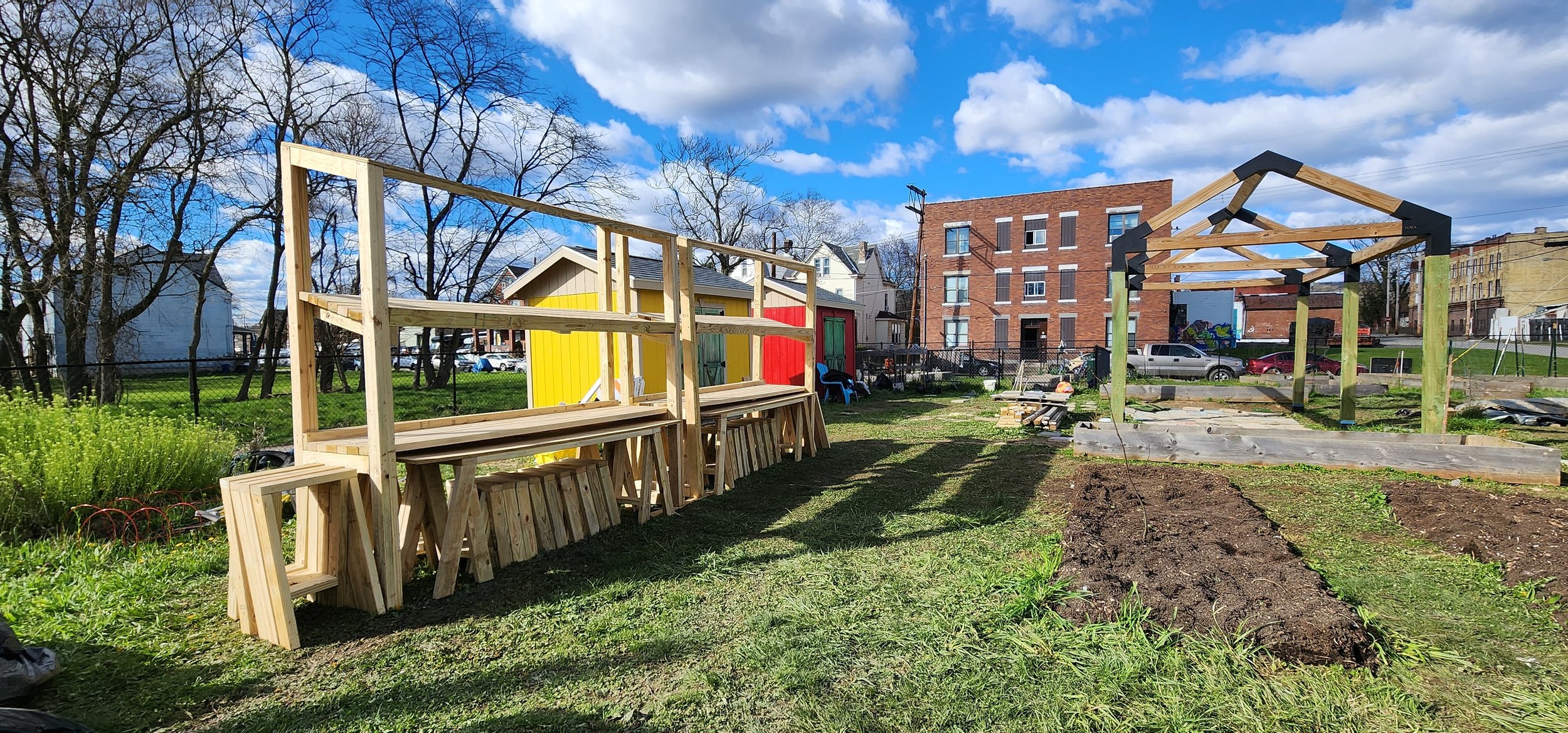
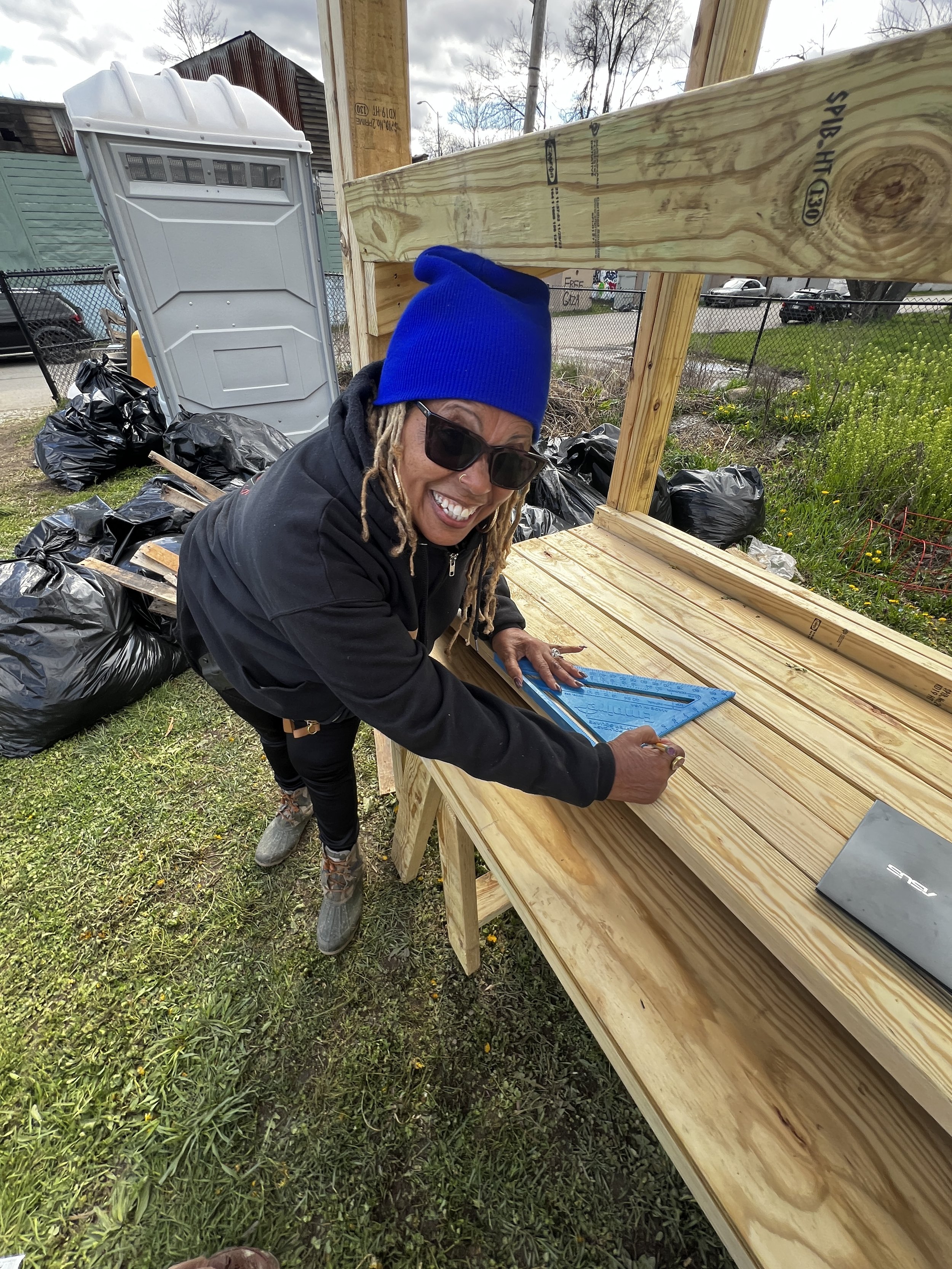
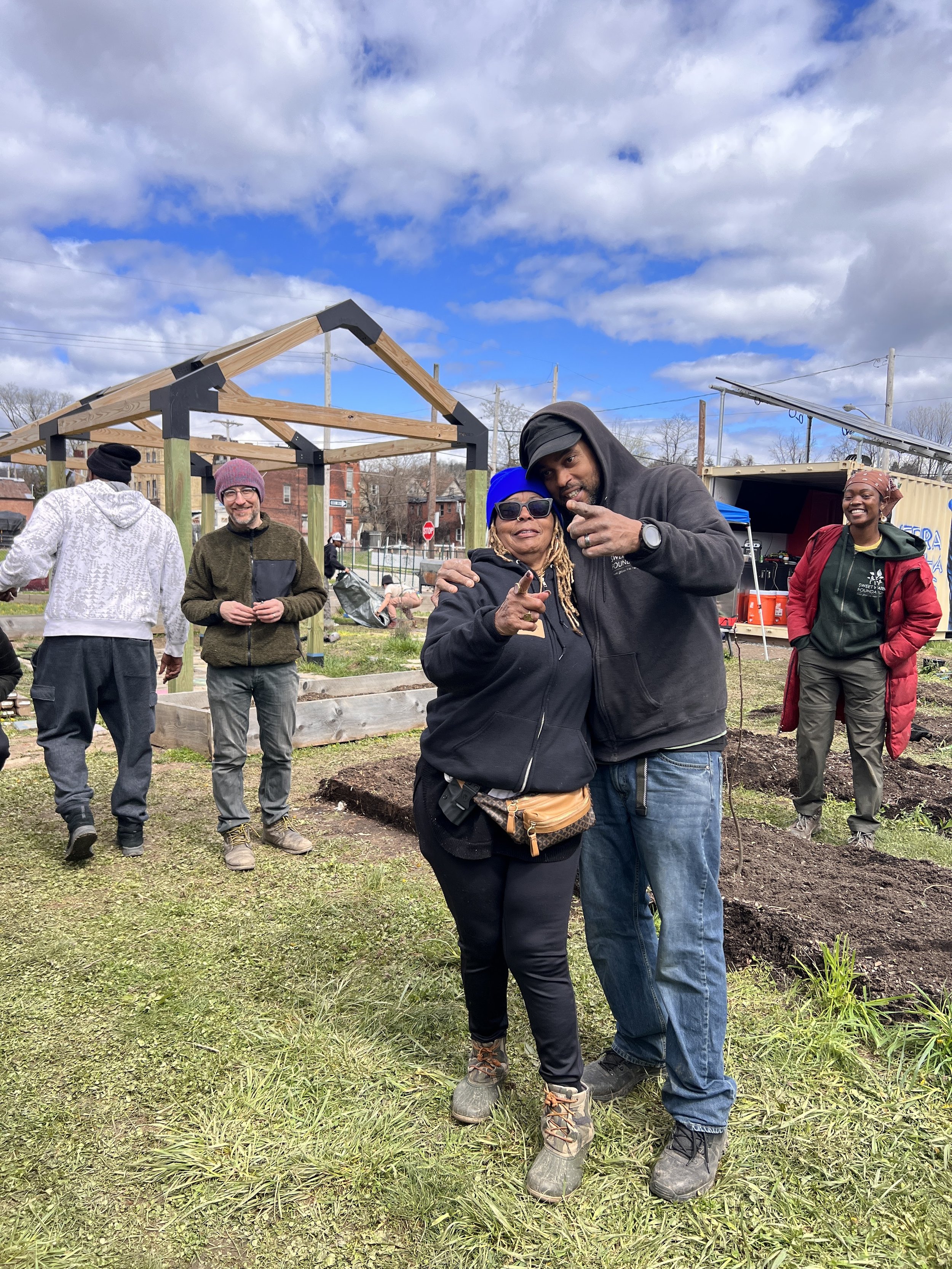
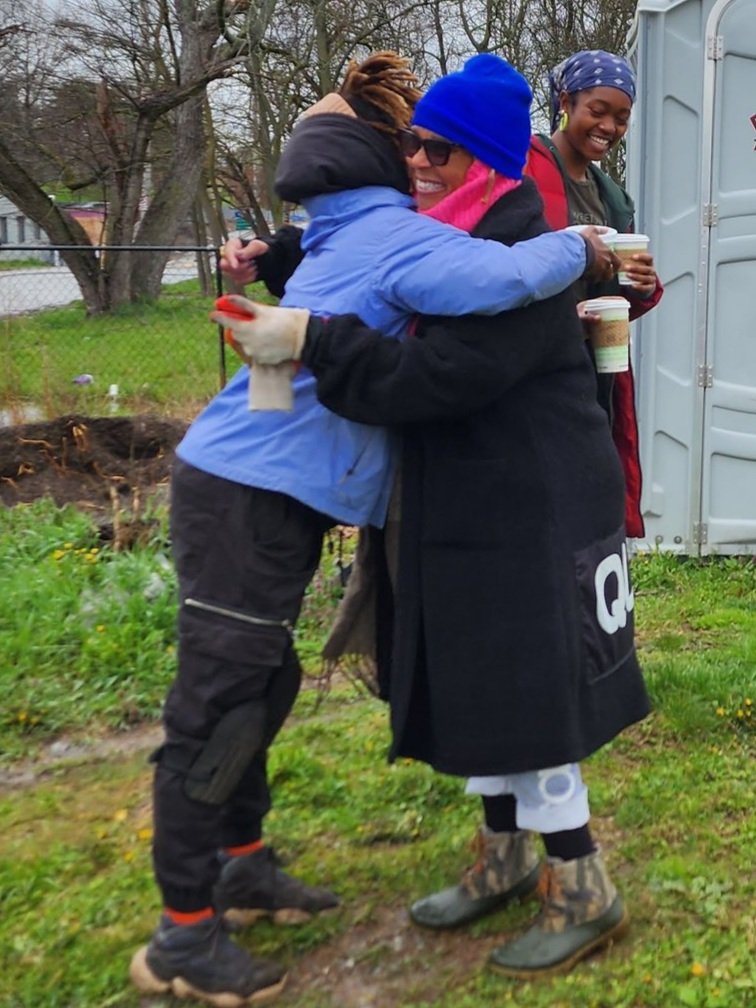
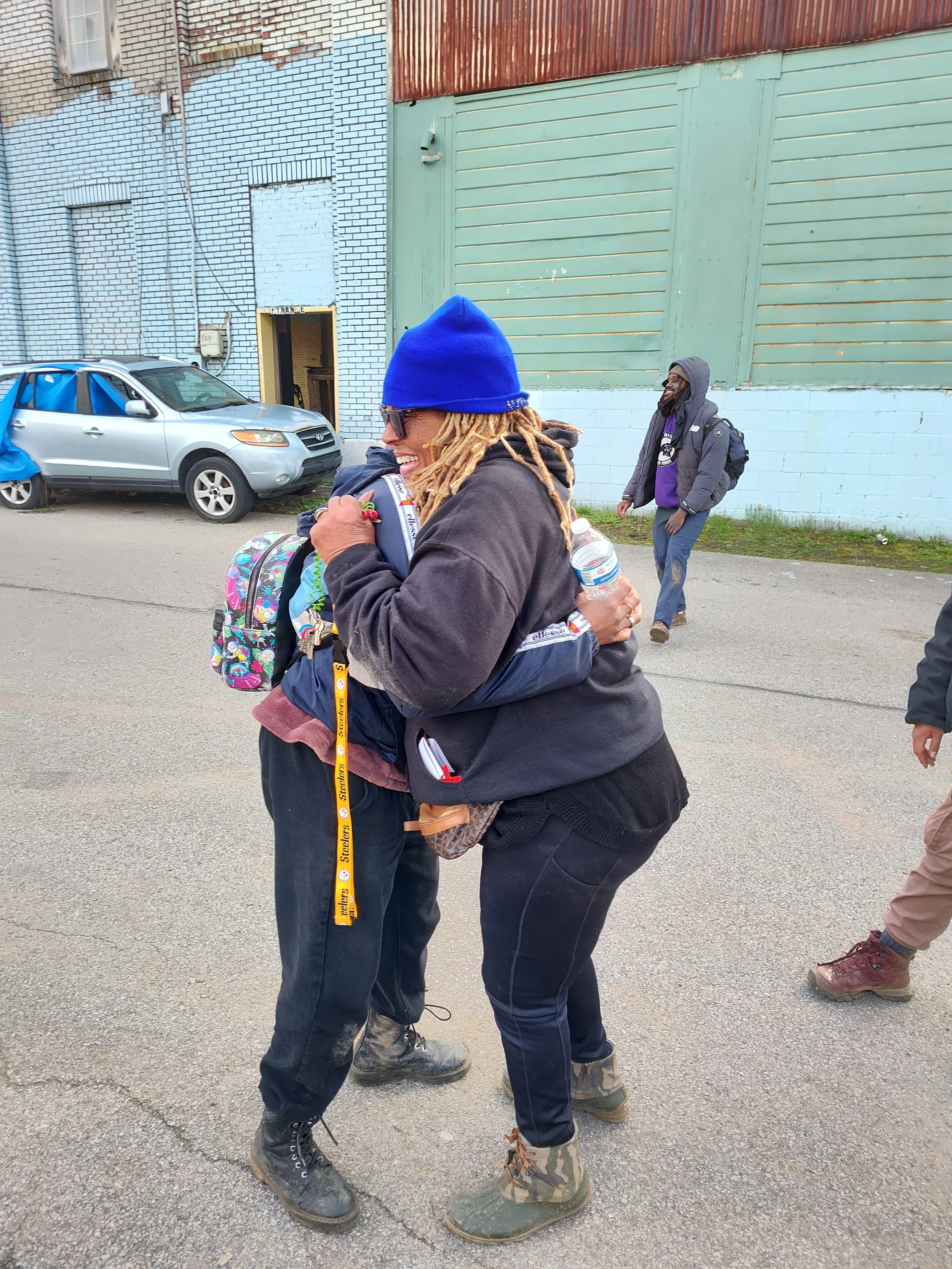
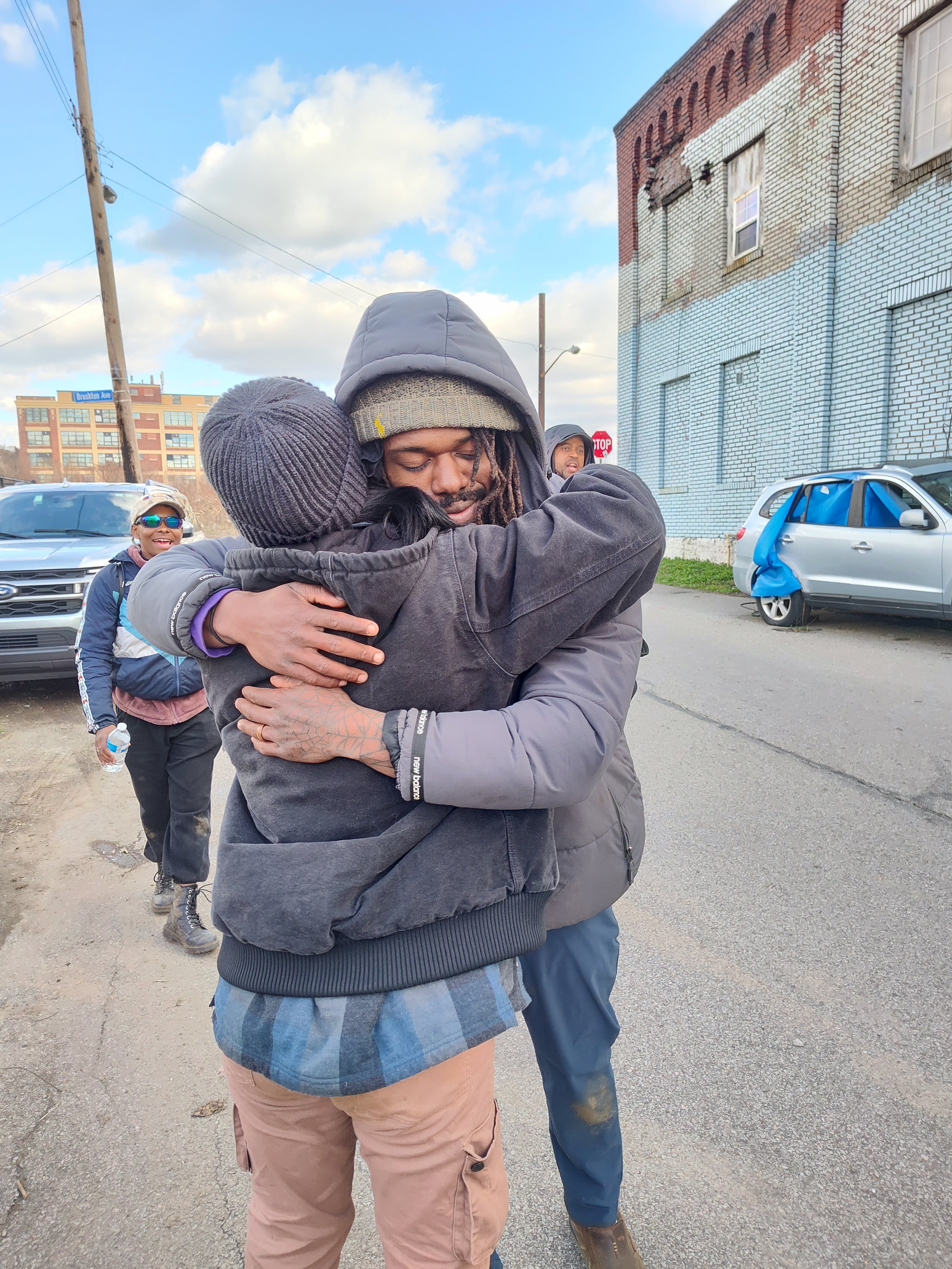

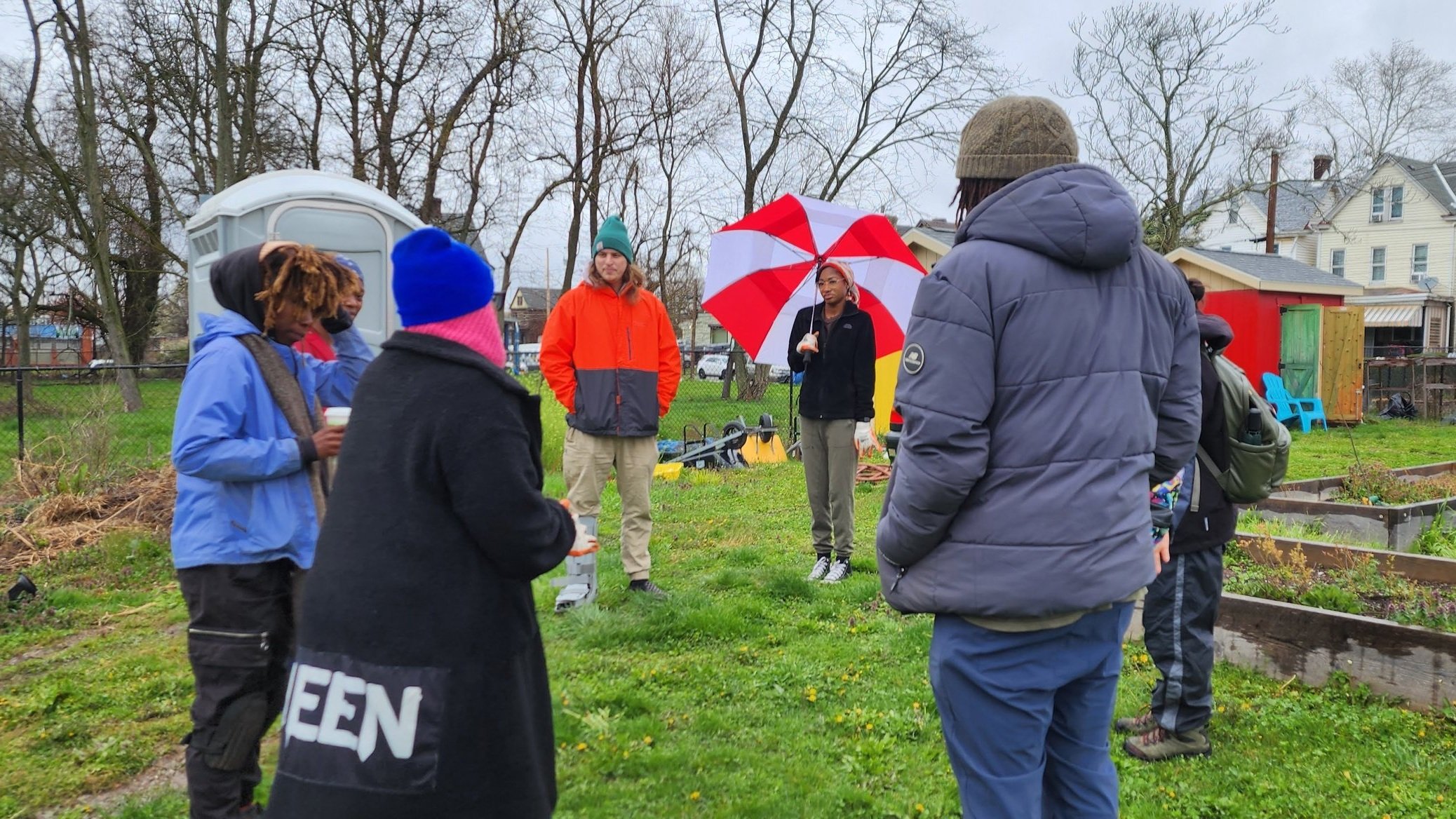
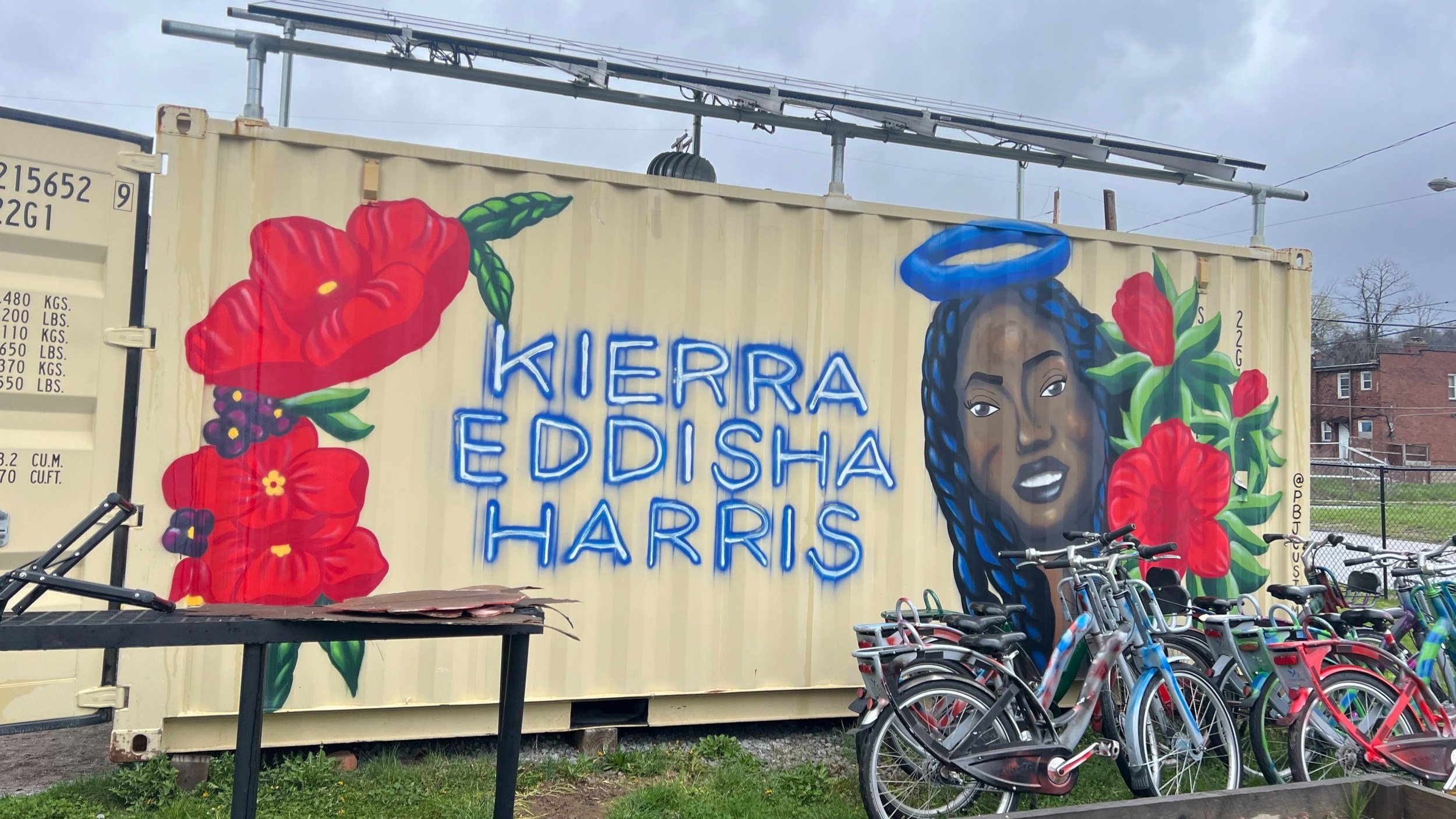
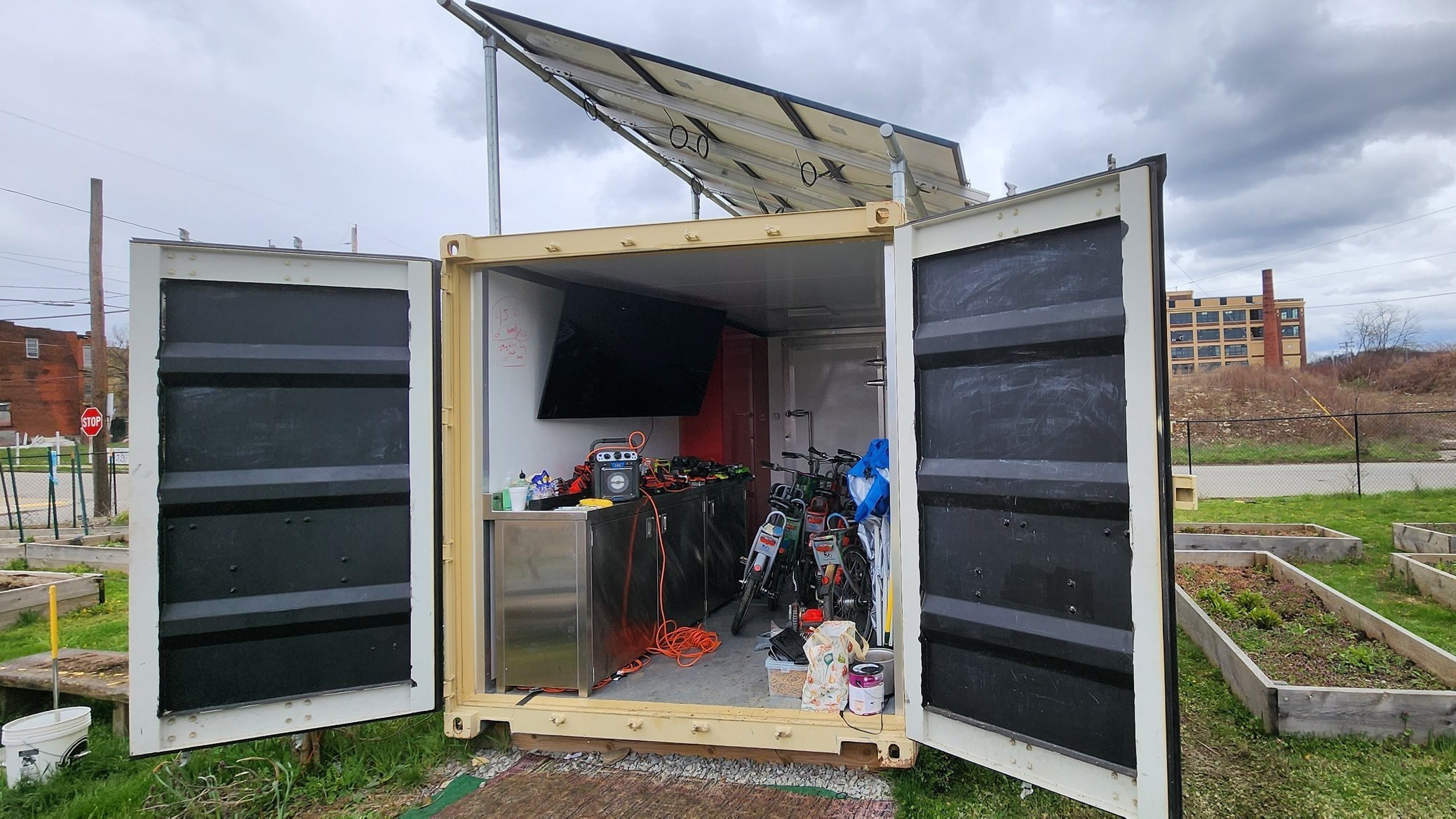
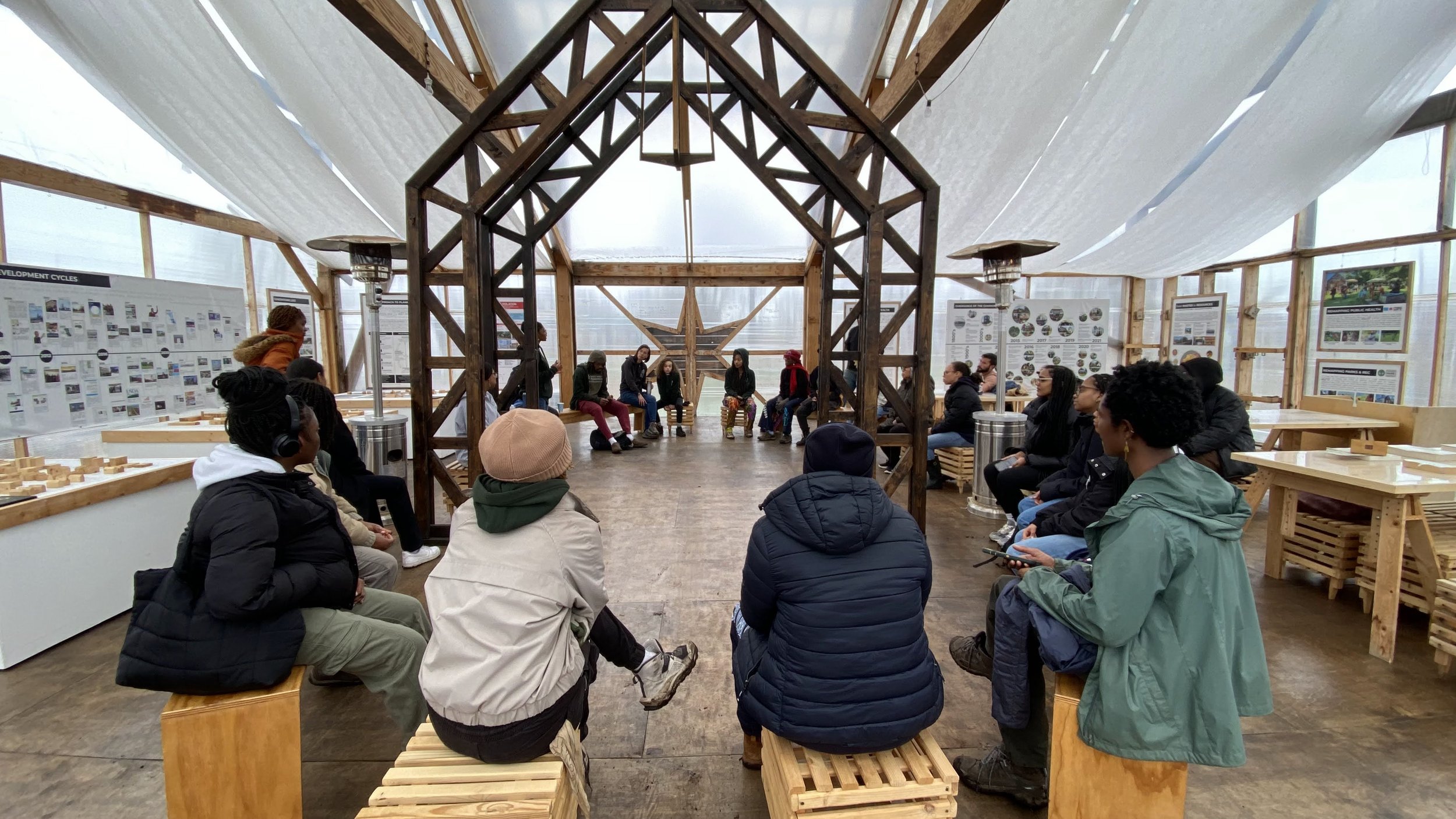
![Copy of [Re]Mapping the Publics .jpg](https://images.squarespace-cdn.com/content/v1/59777179cd39c371b6b11de3/1713476123196-AS4VLAQCYQ4QW0TE150Q/Copy+of+%5BRe%5DMapping+the+Publics+.jpg)
